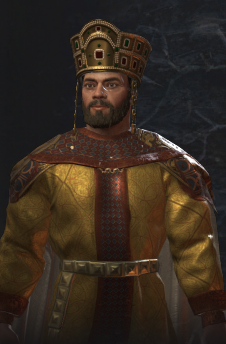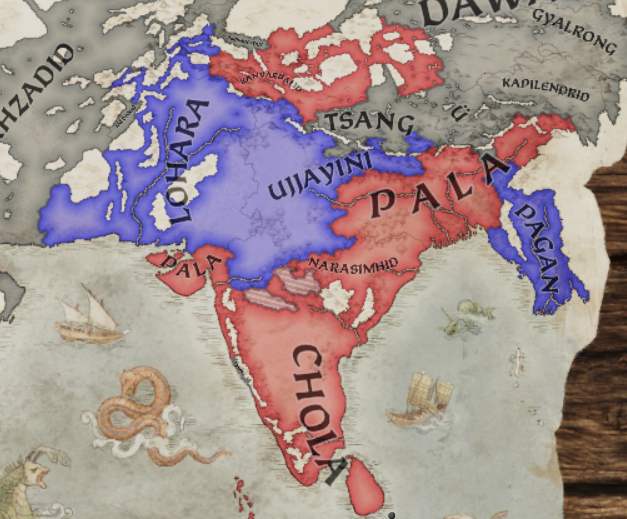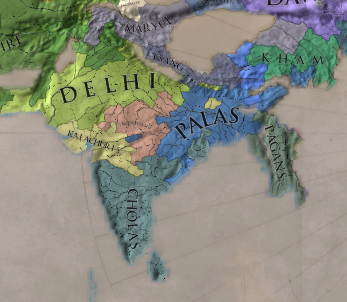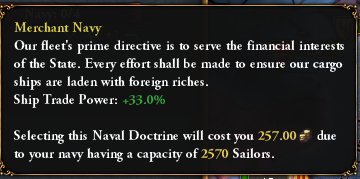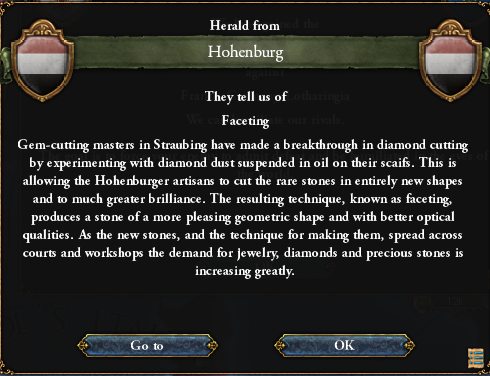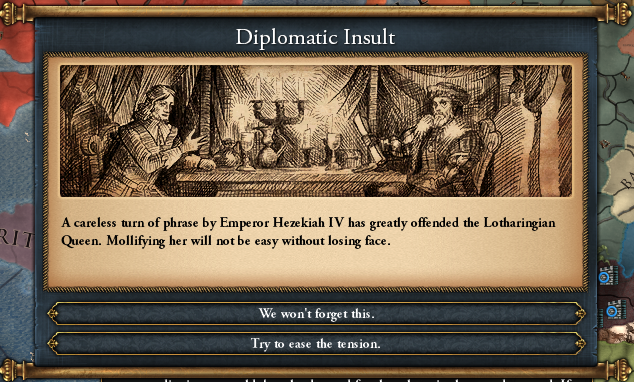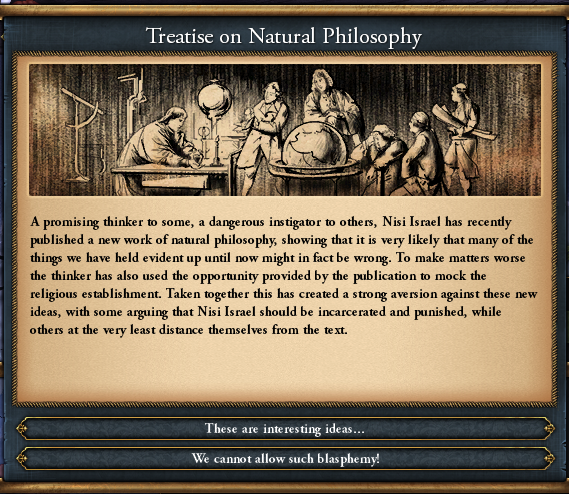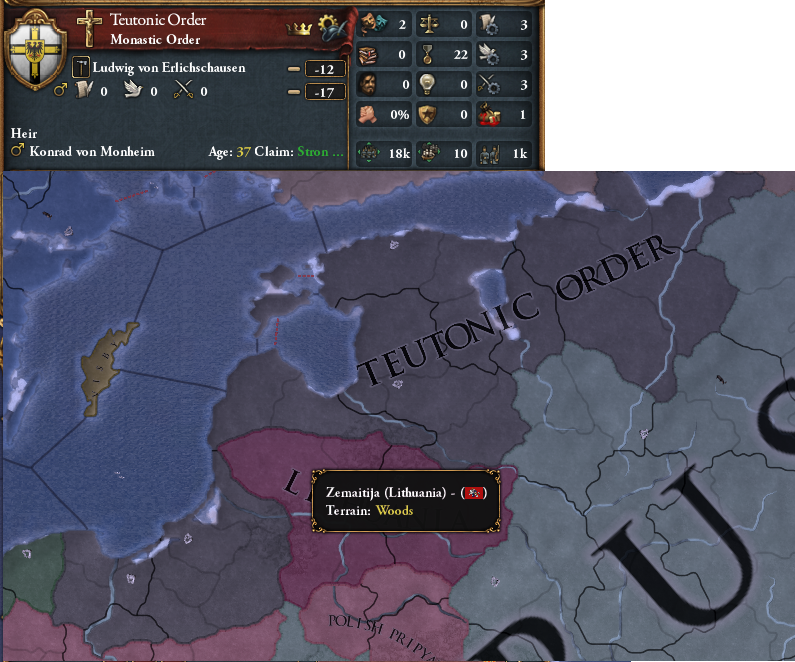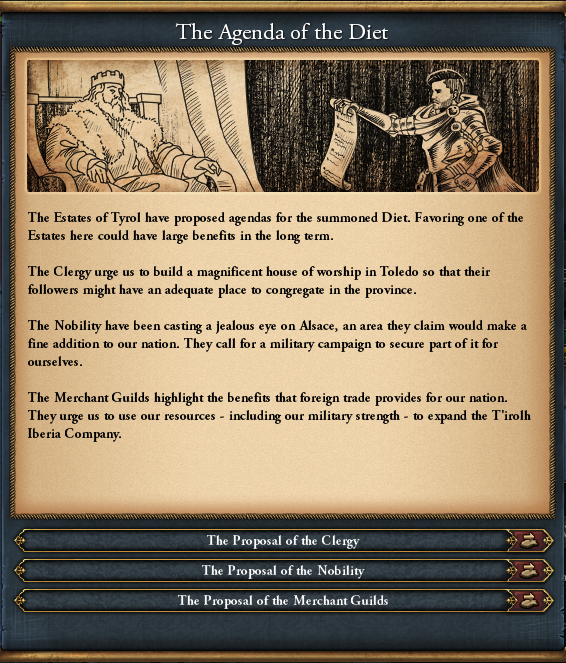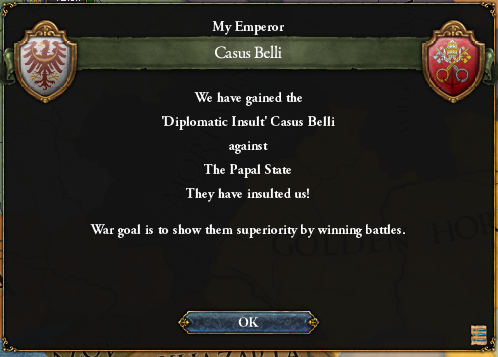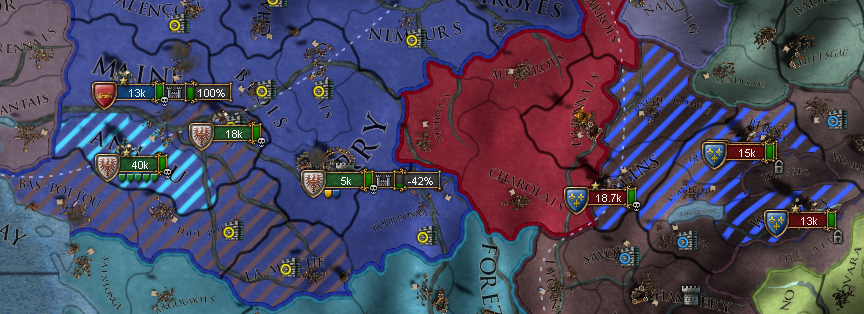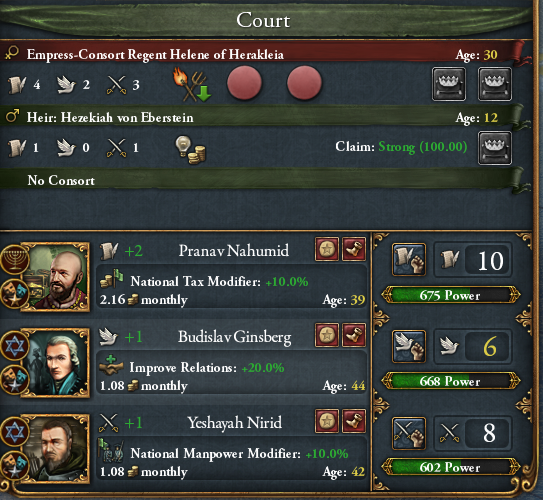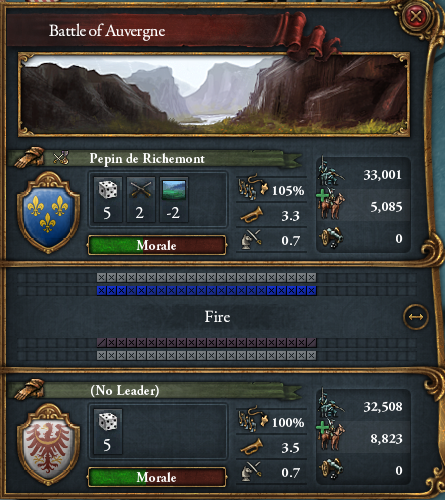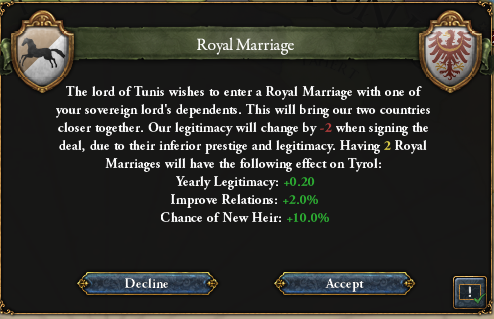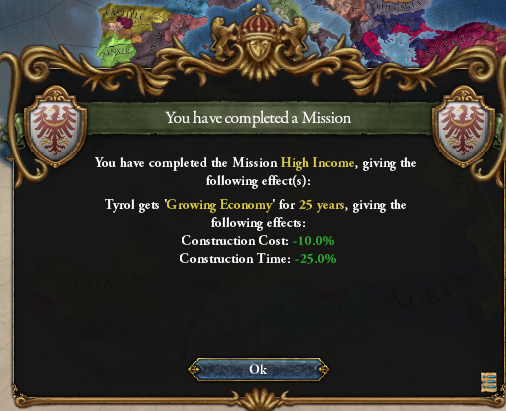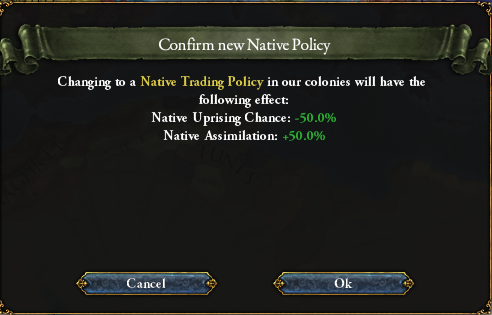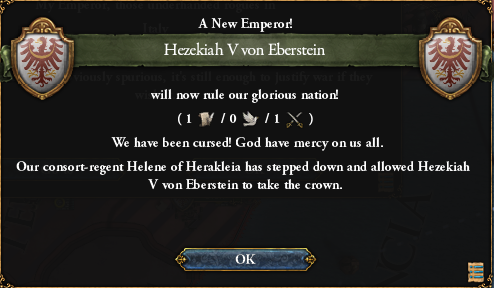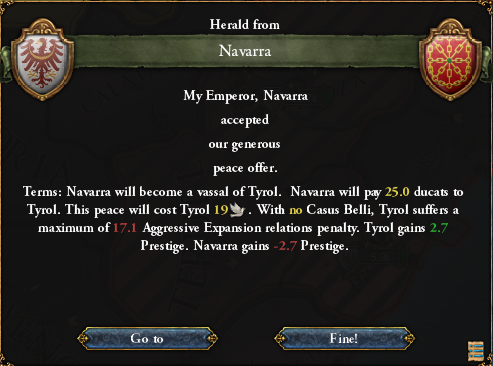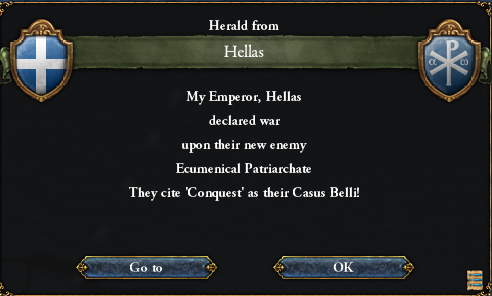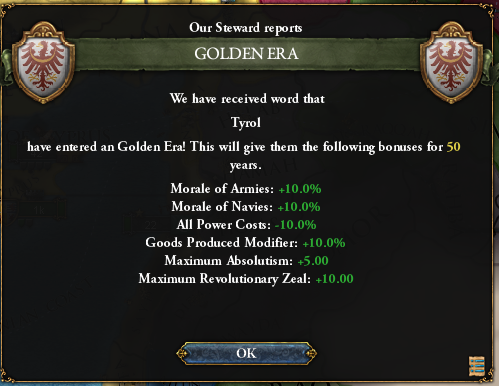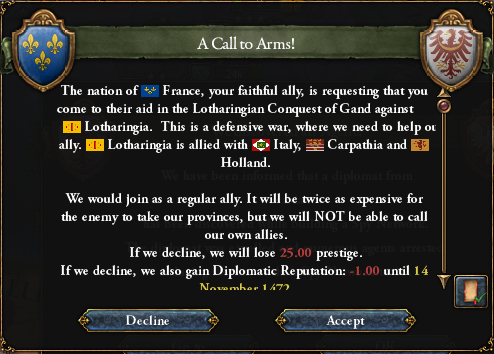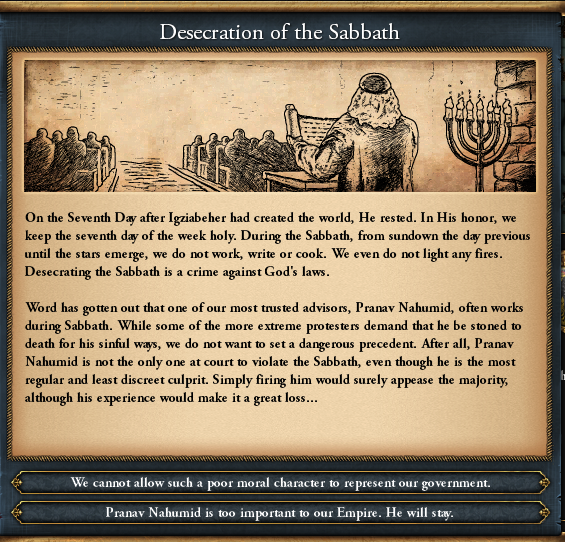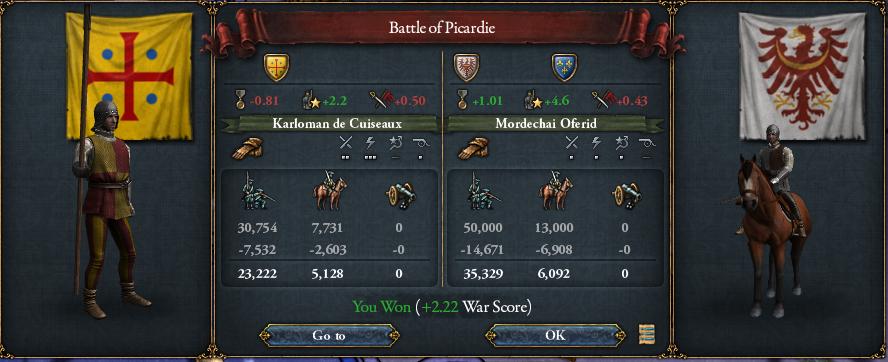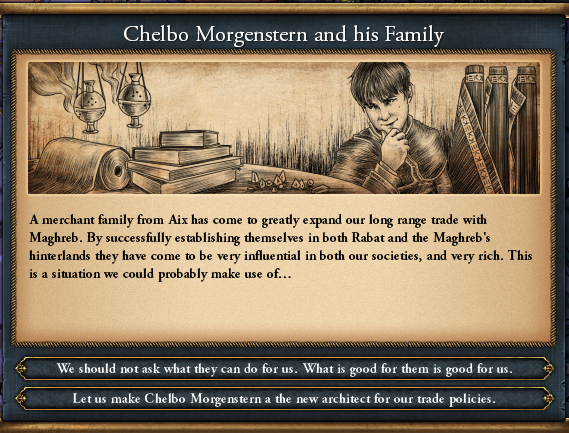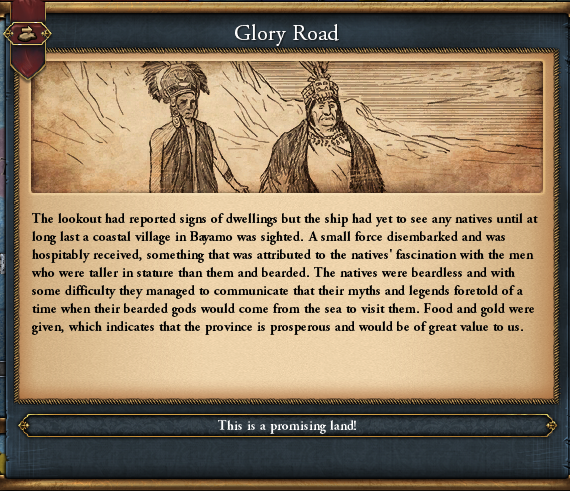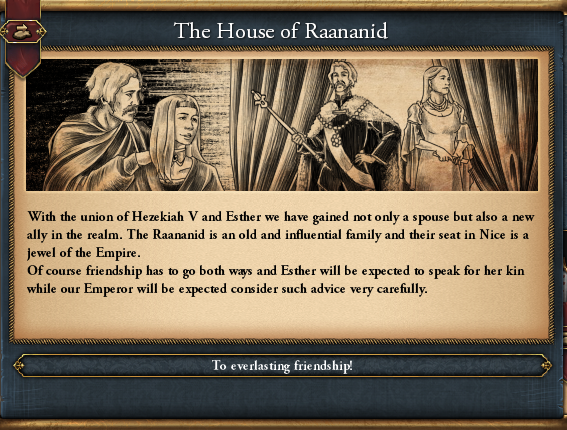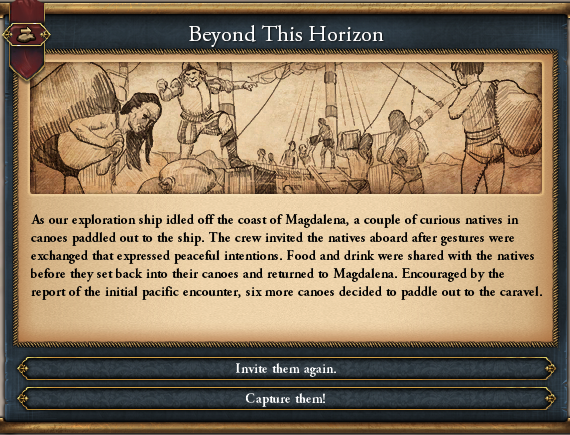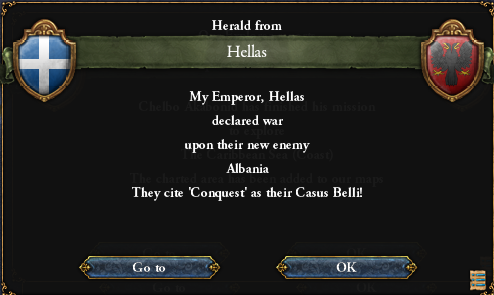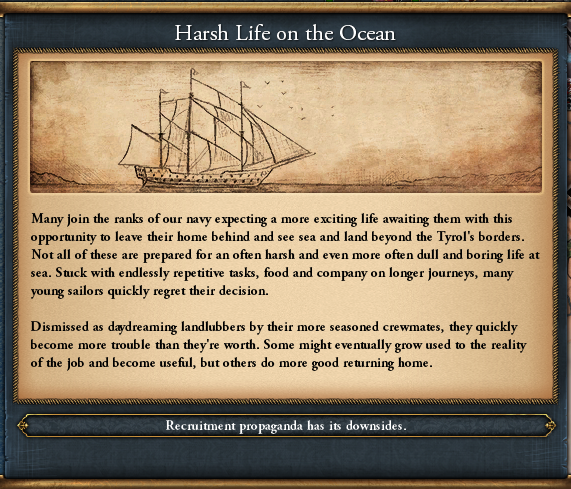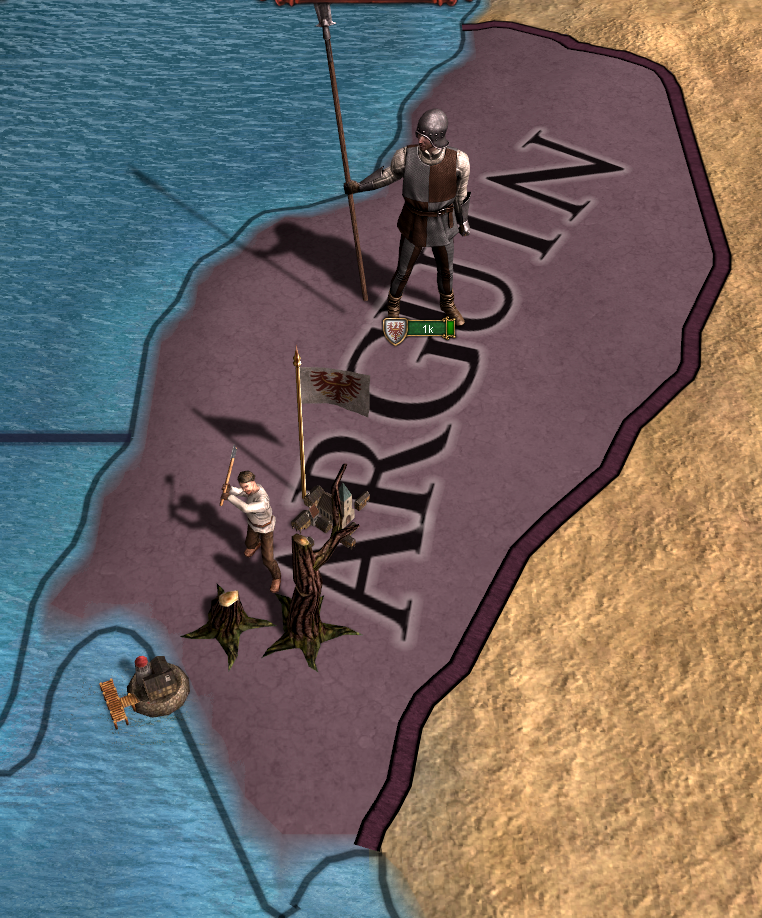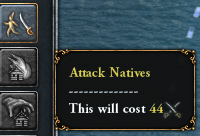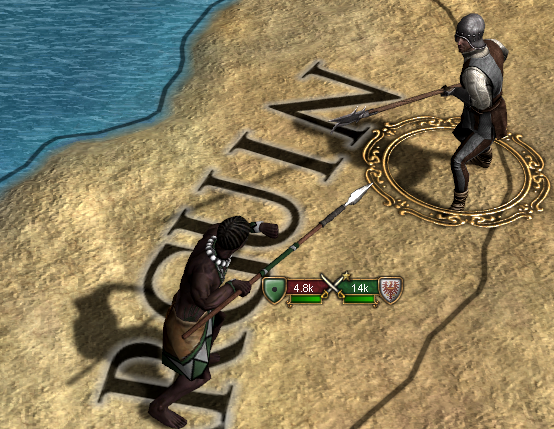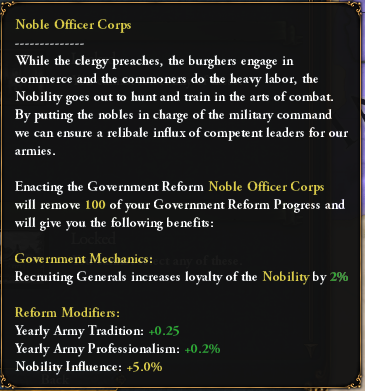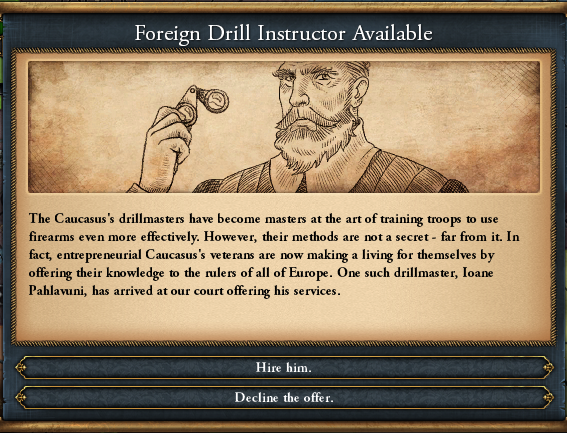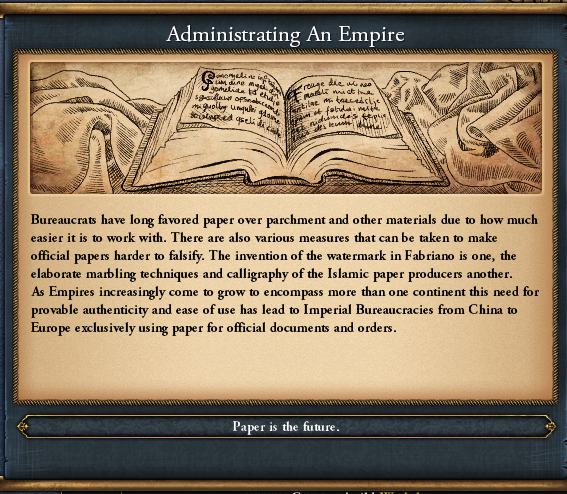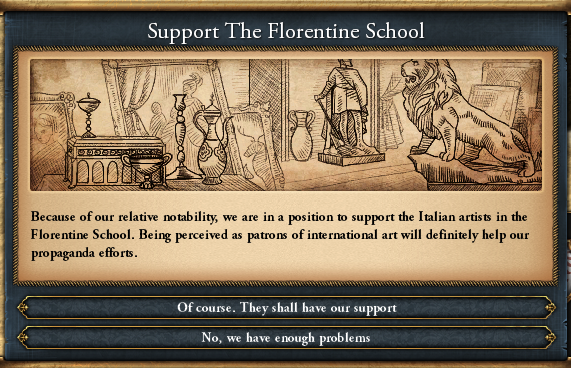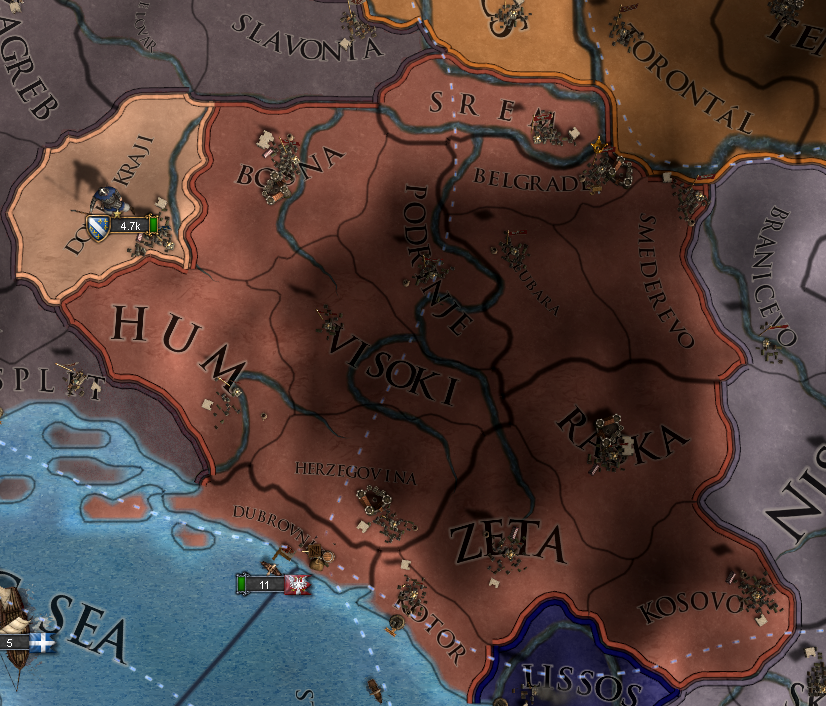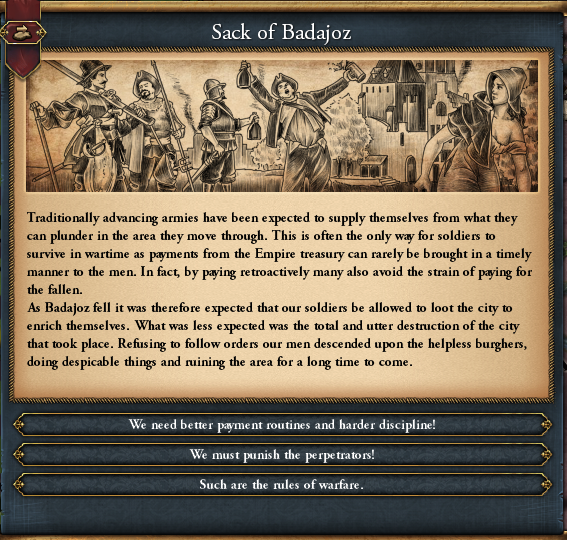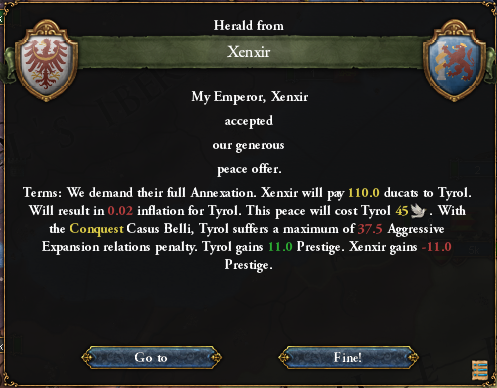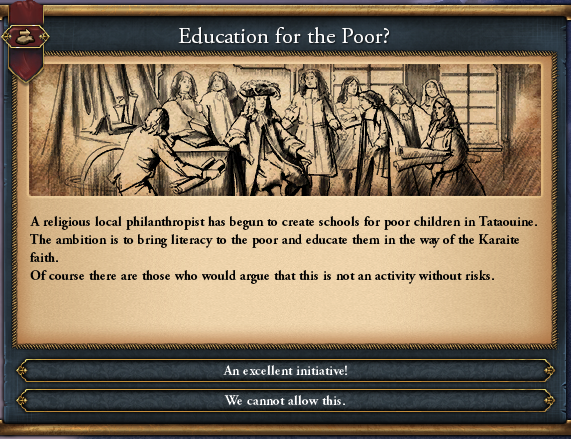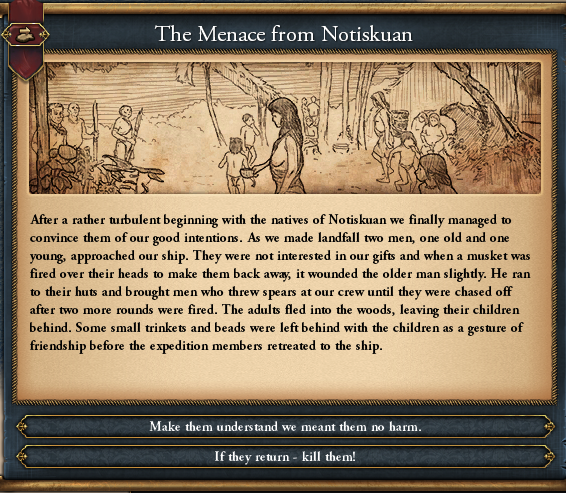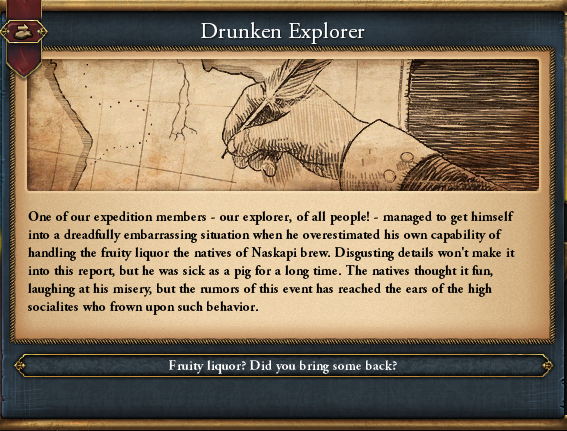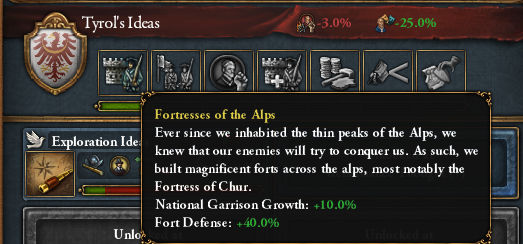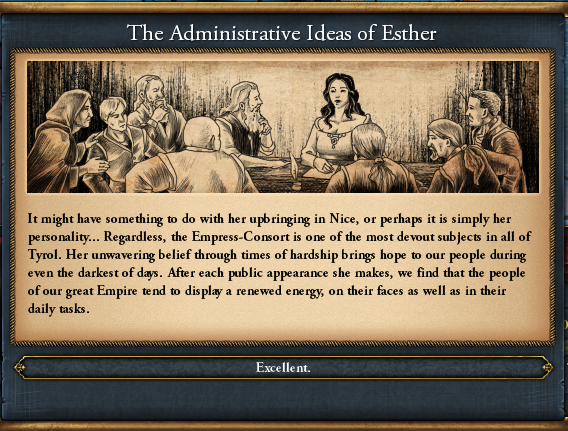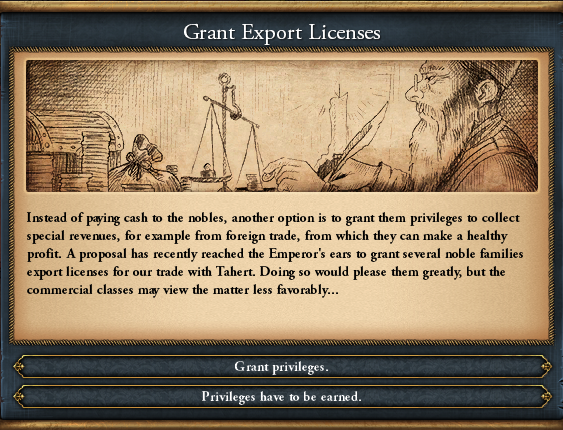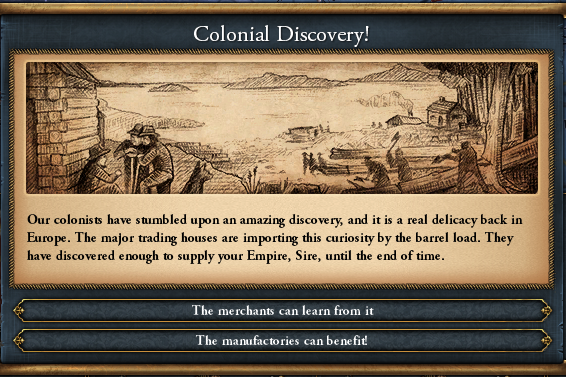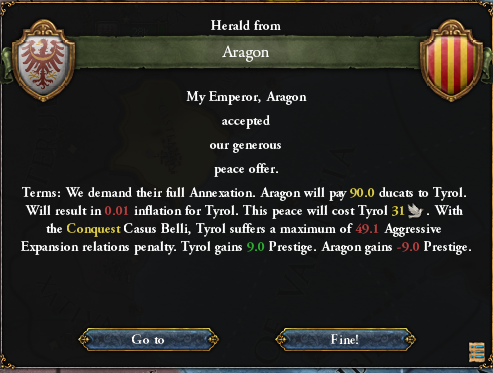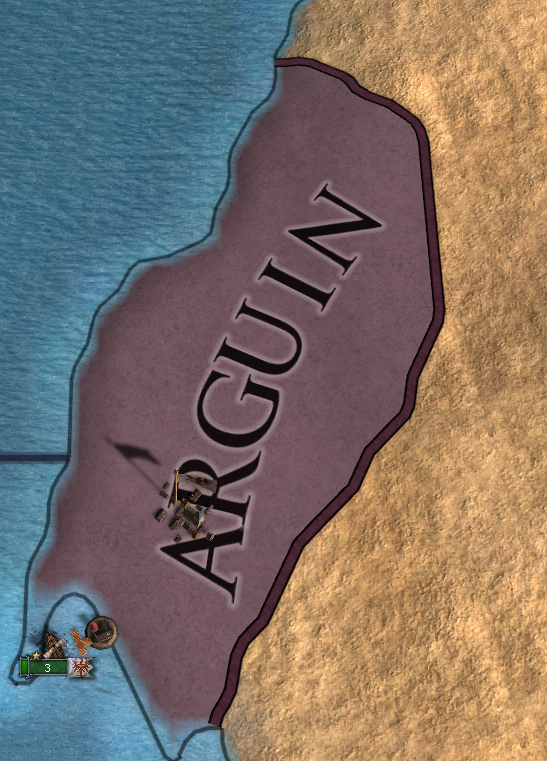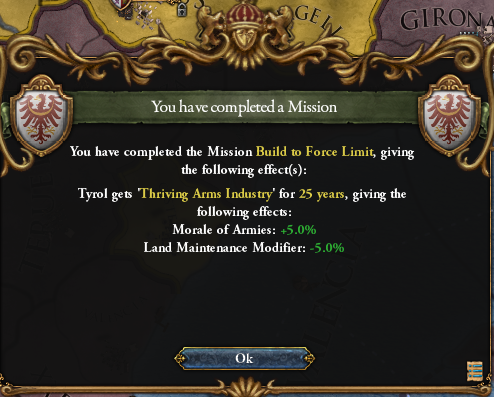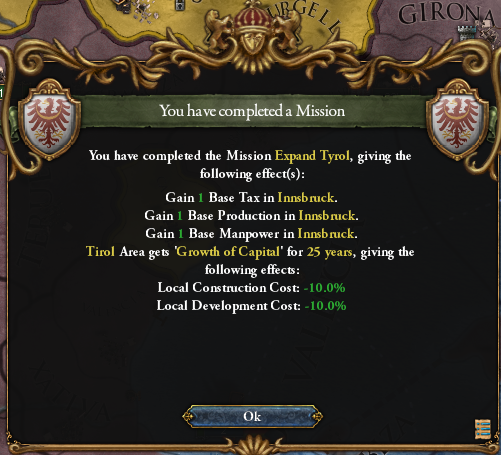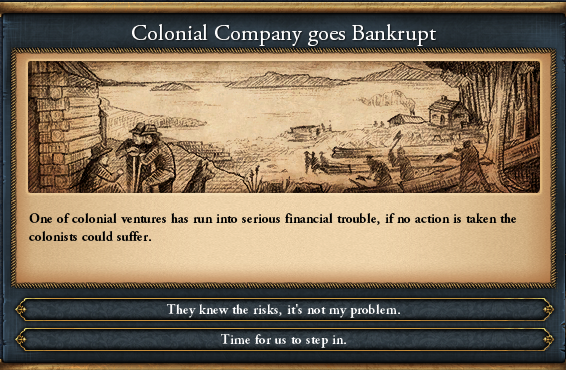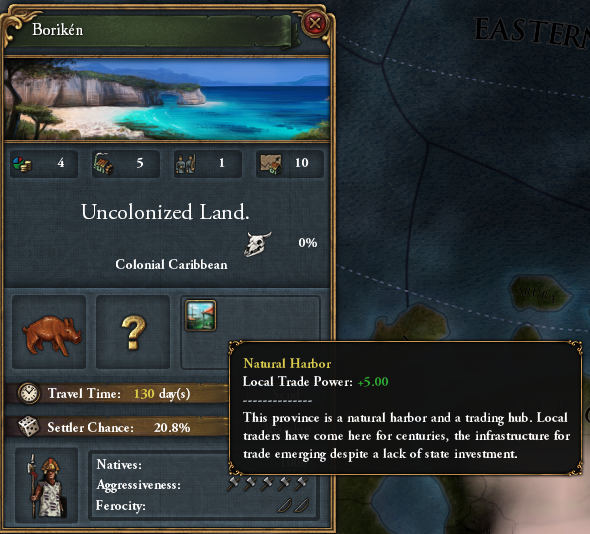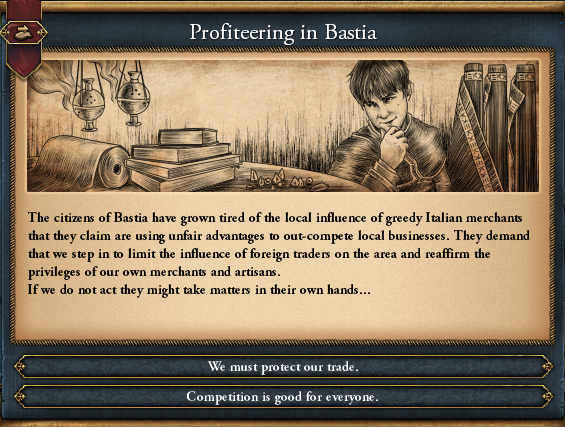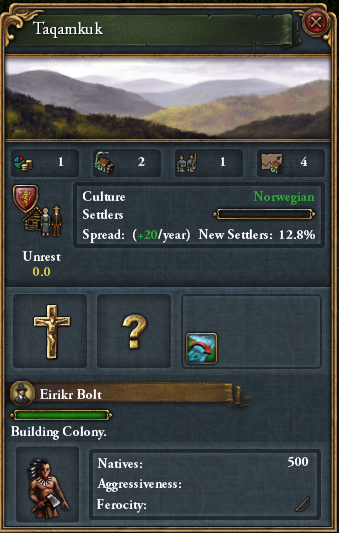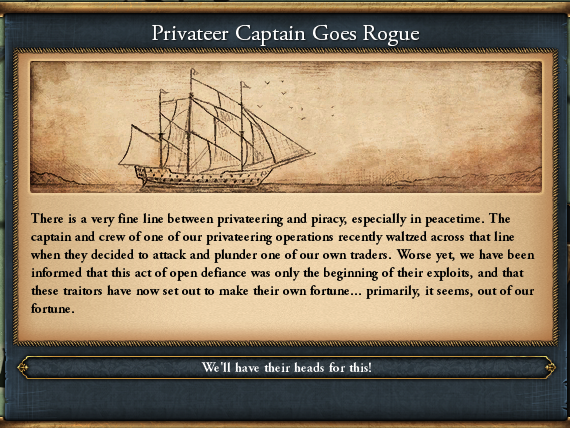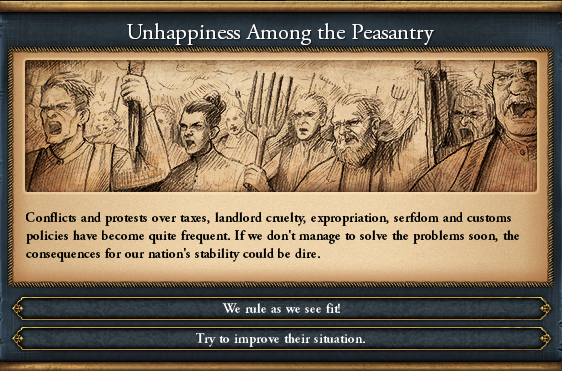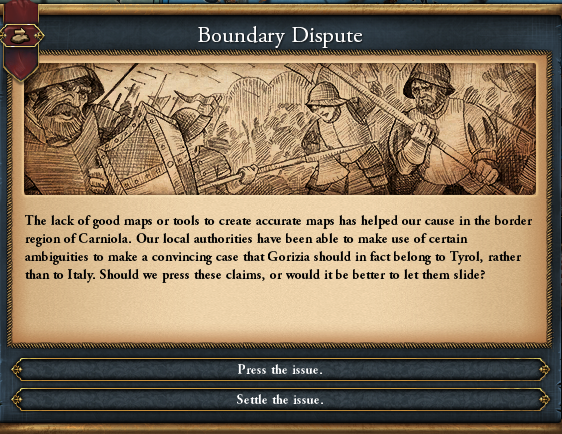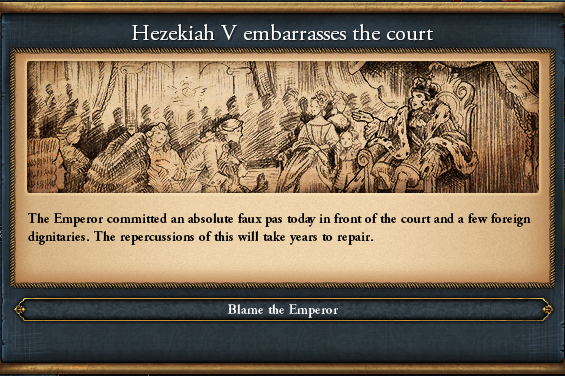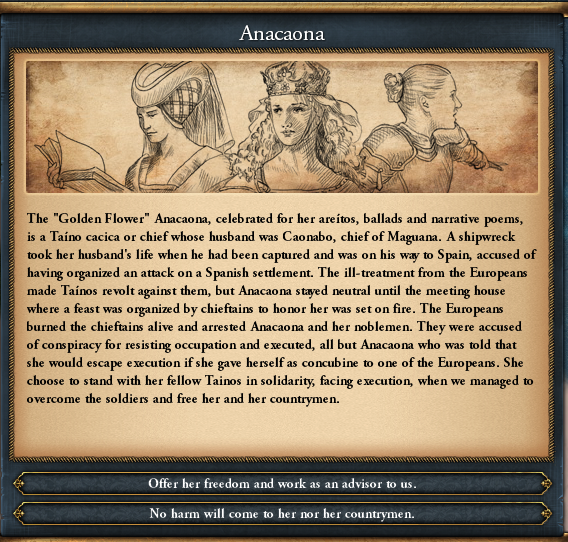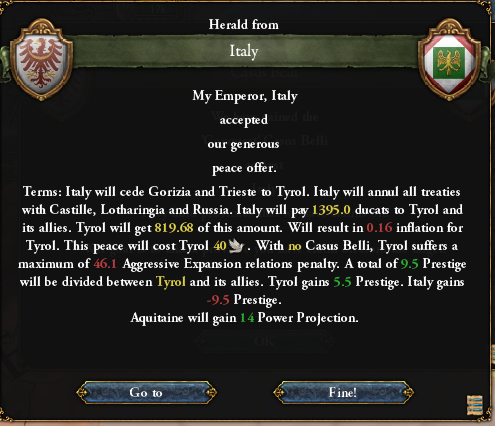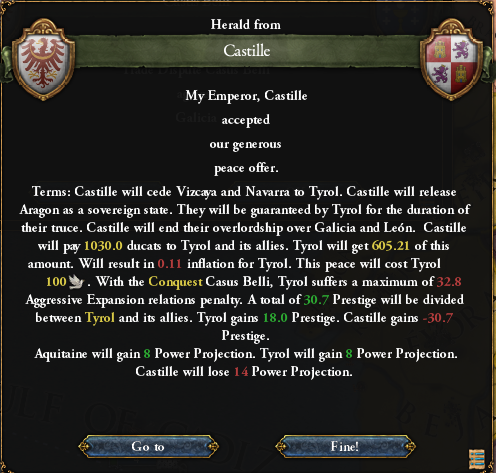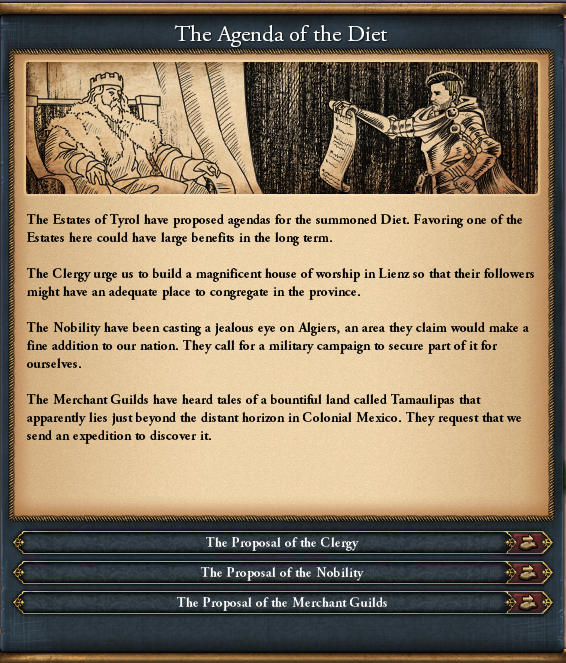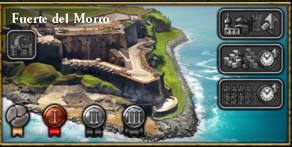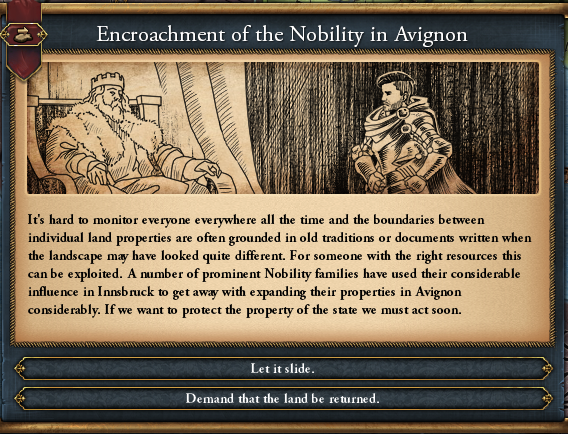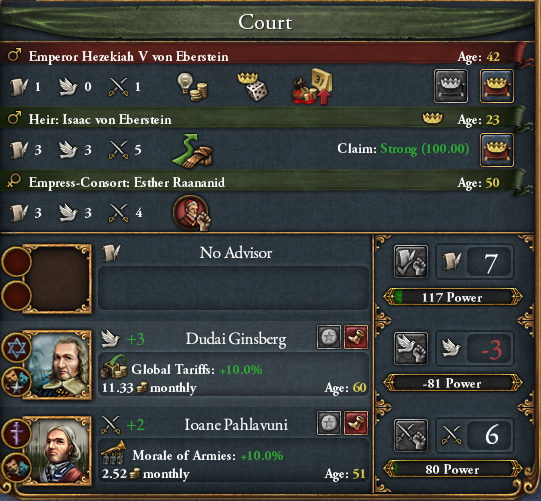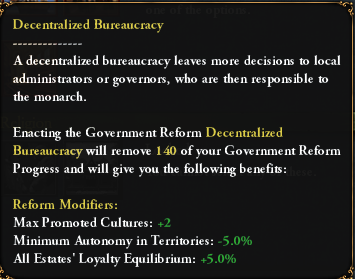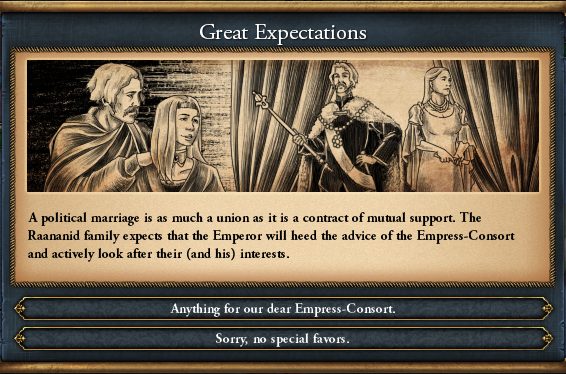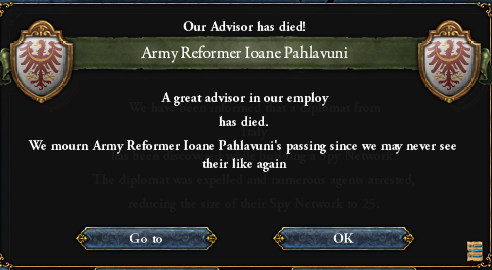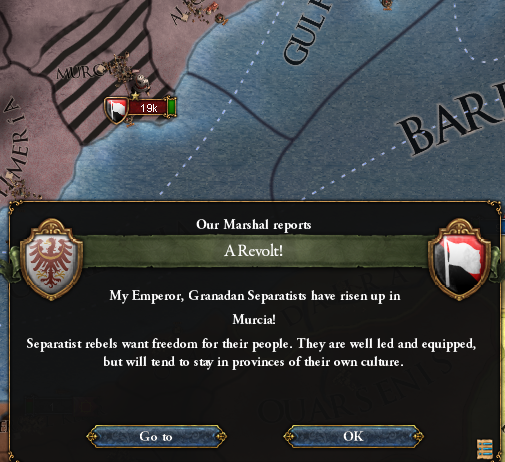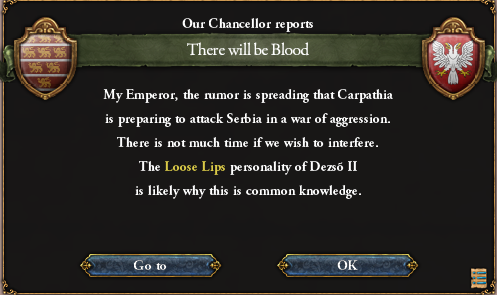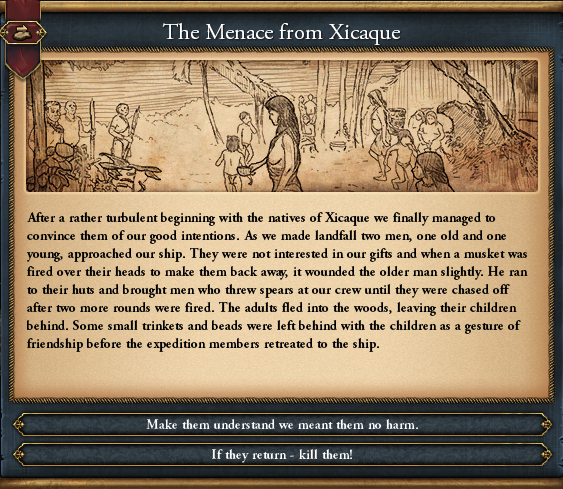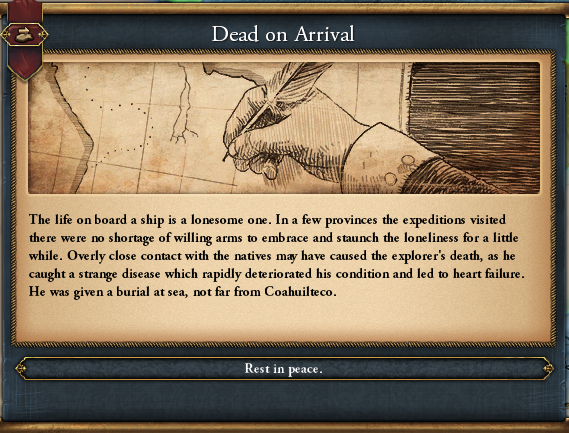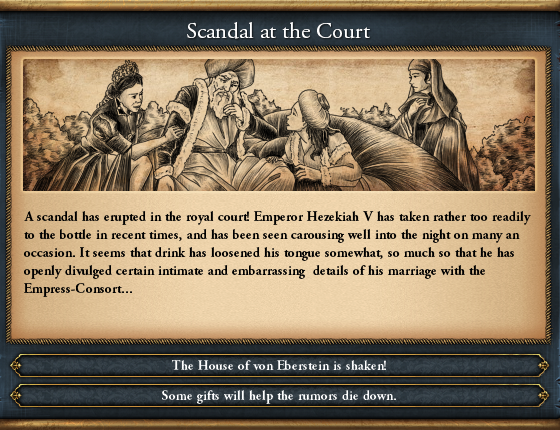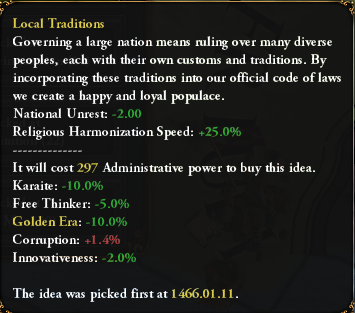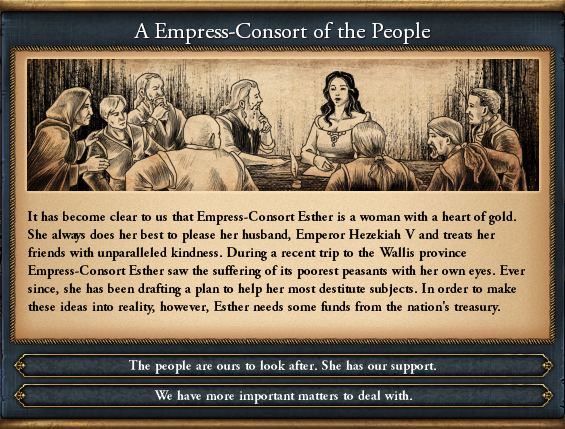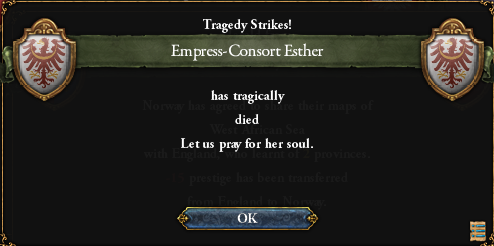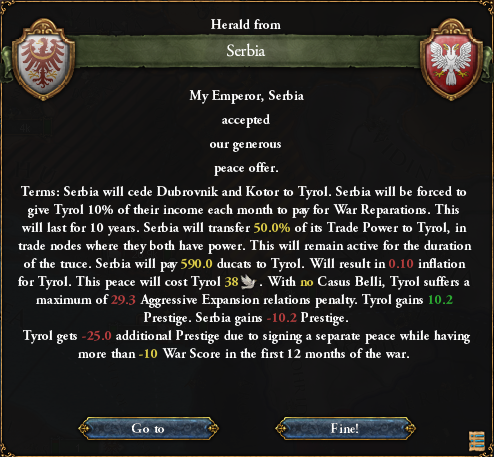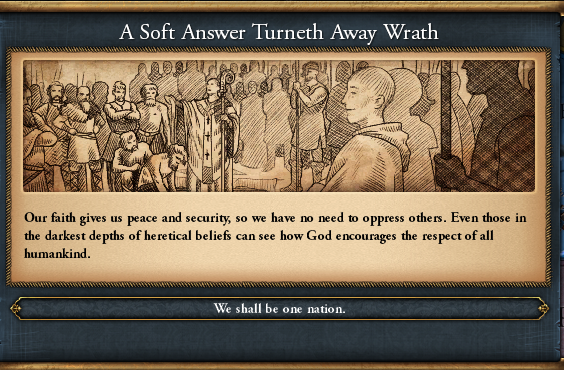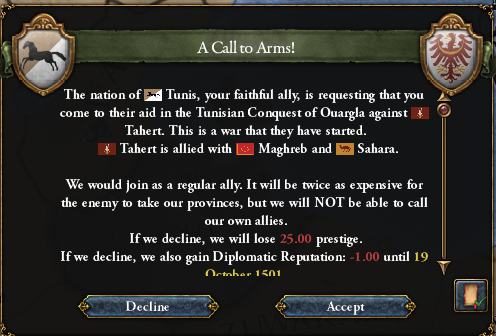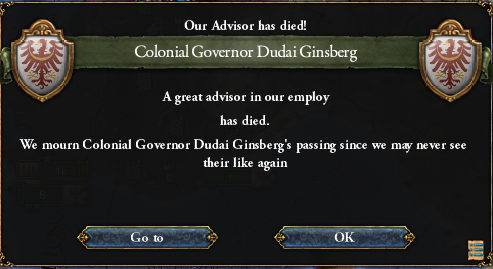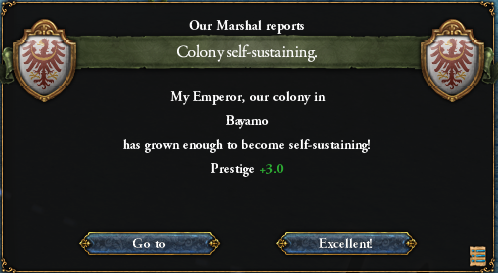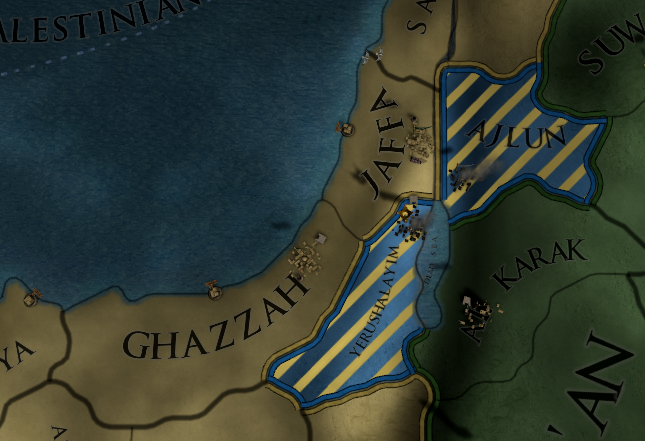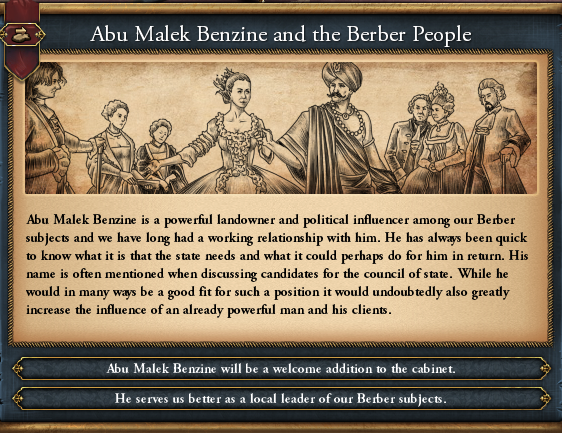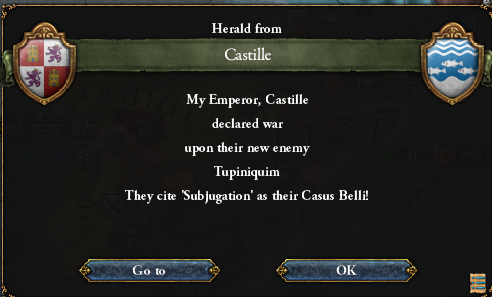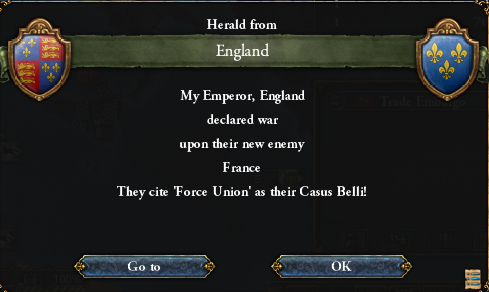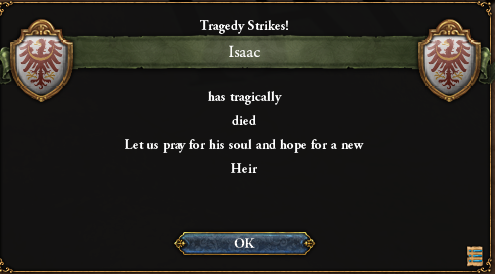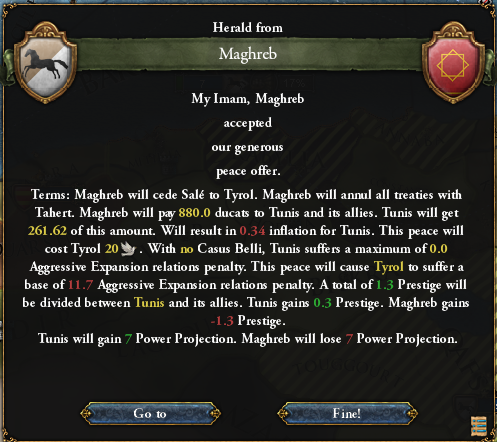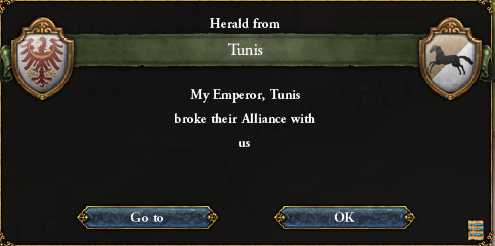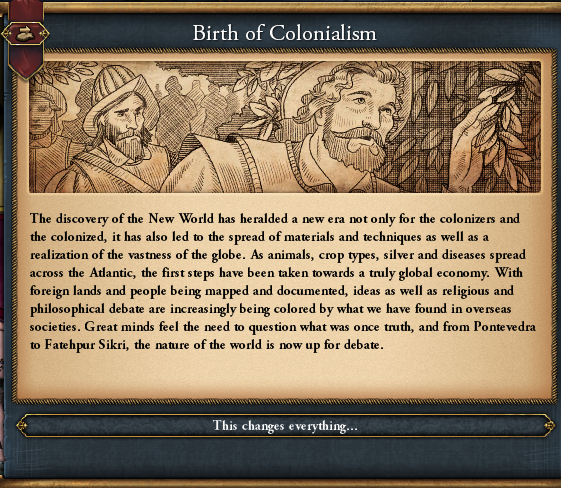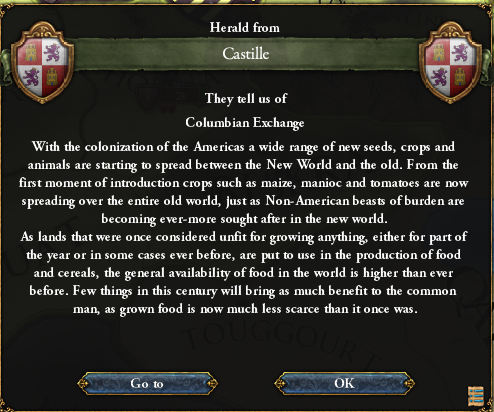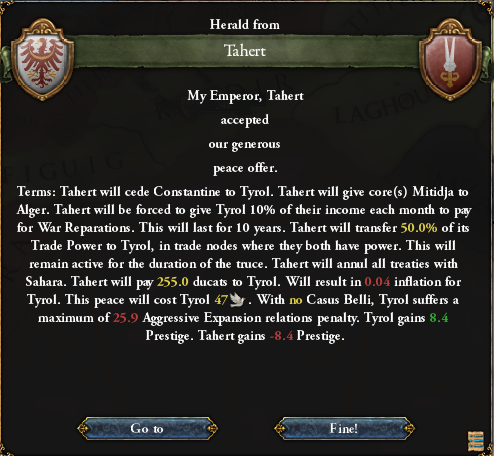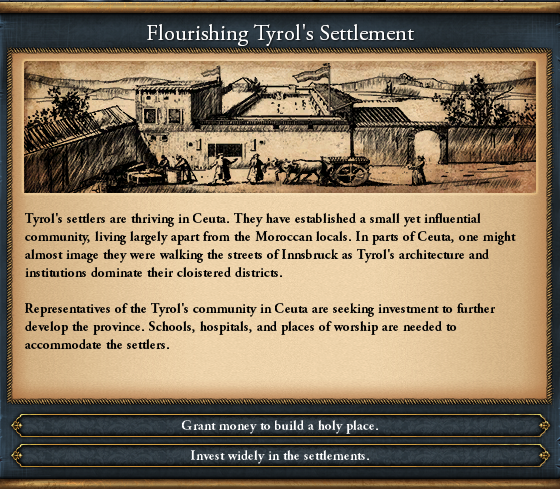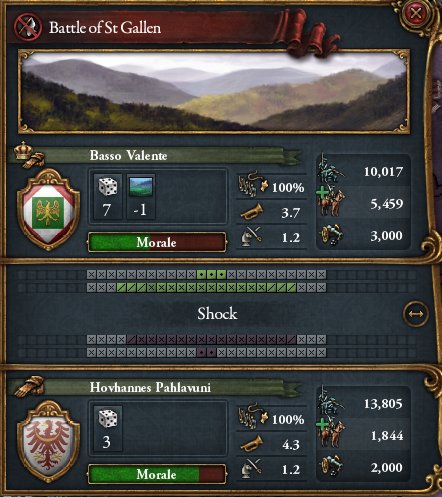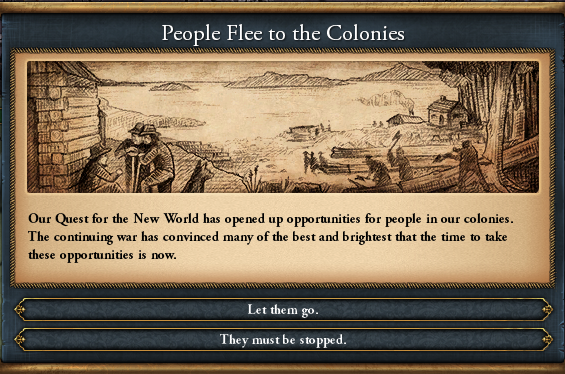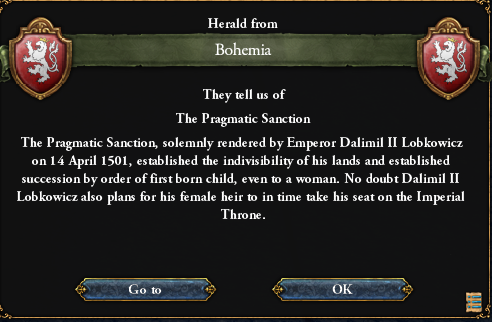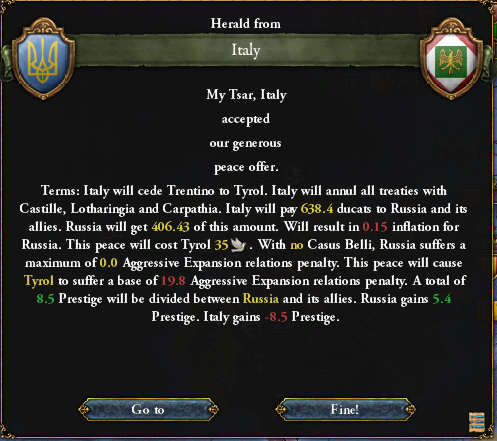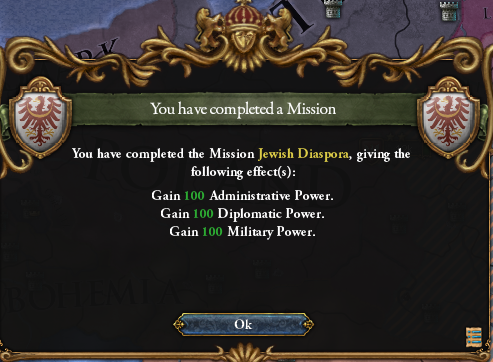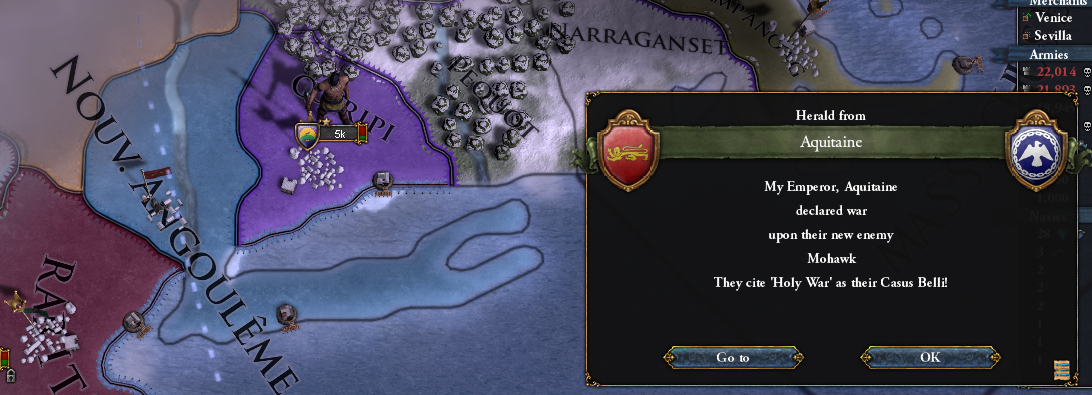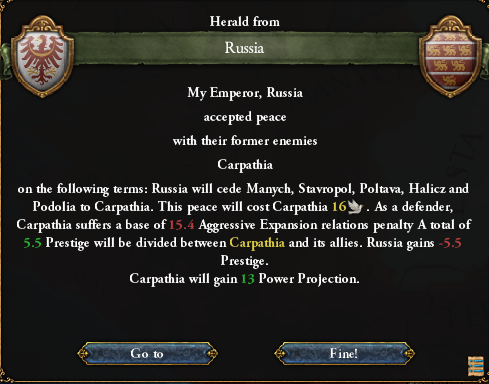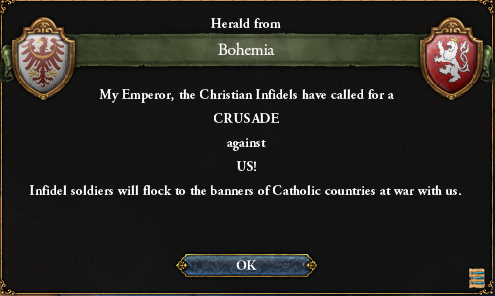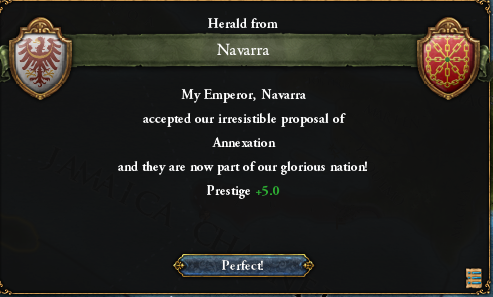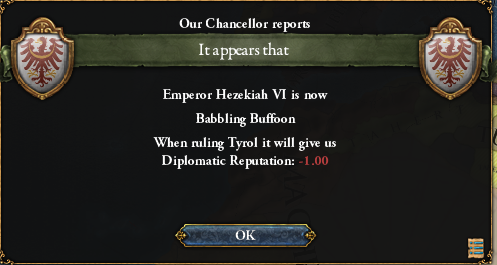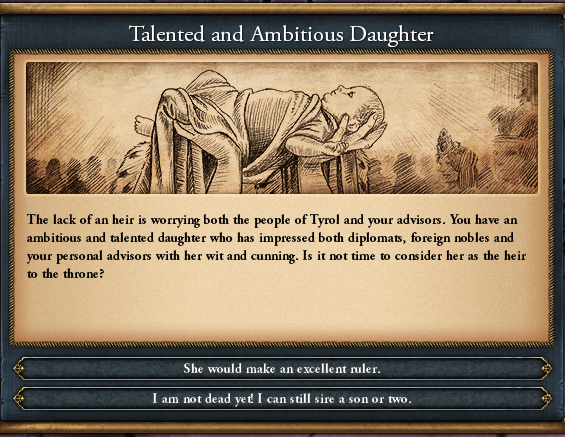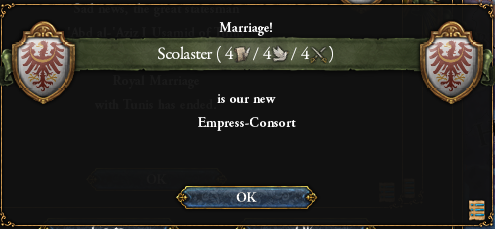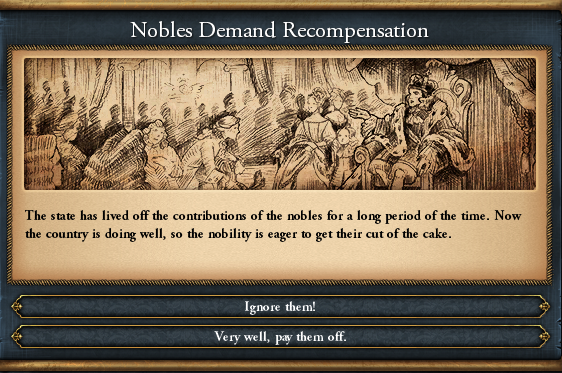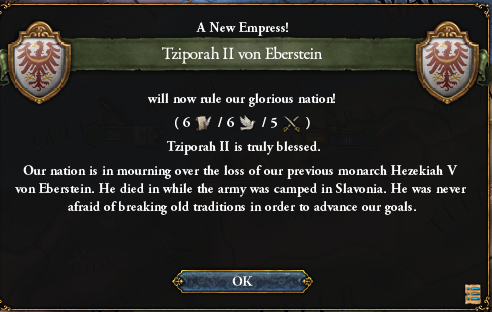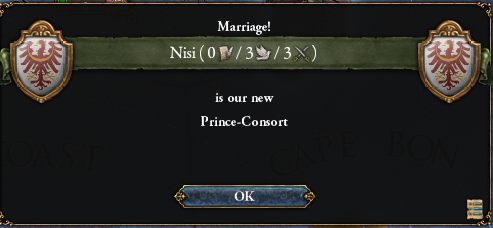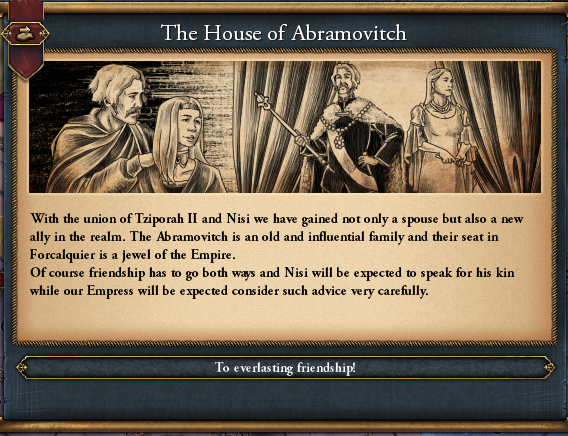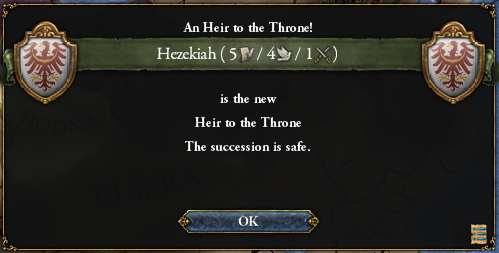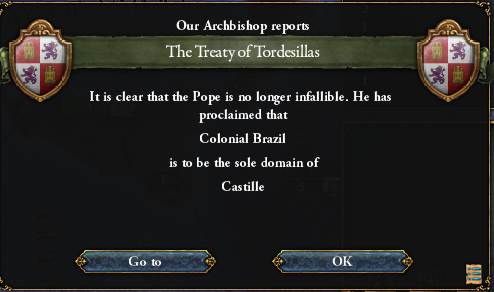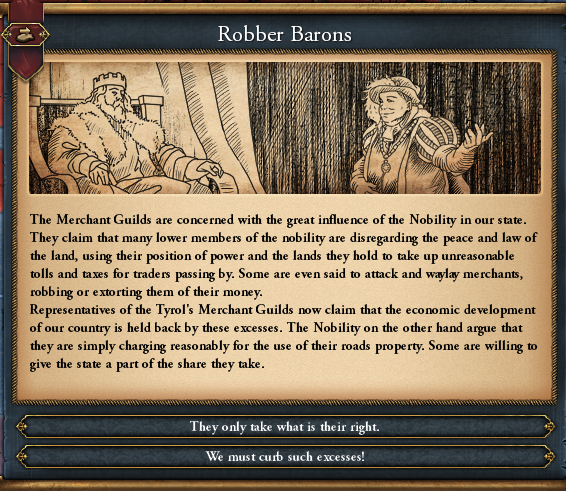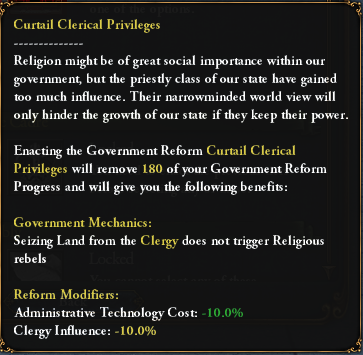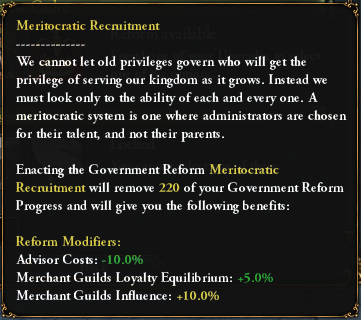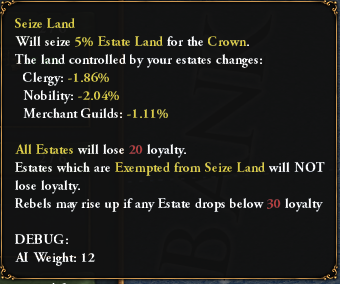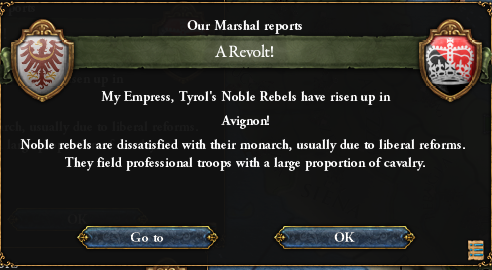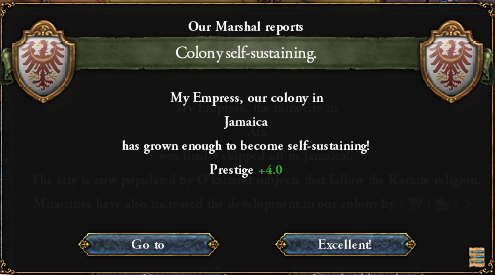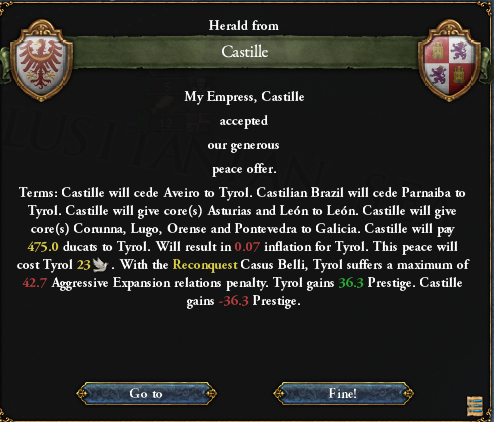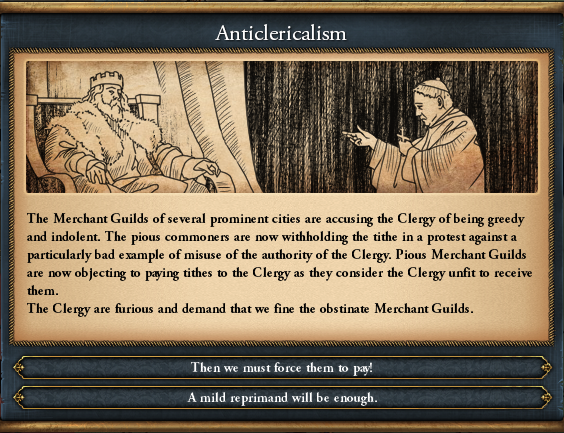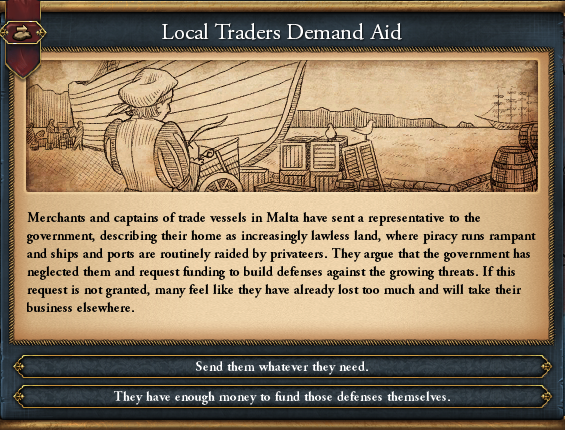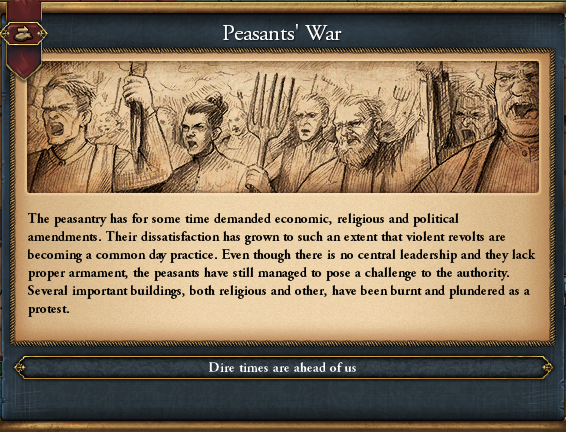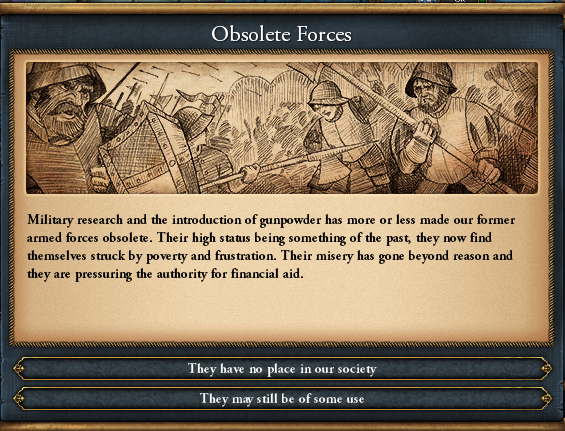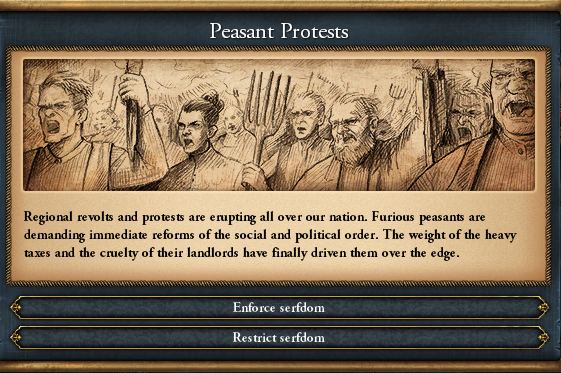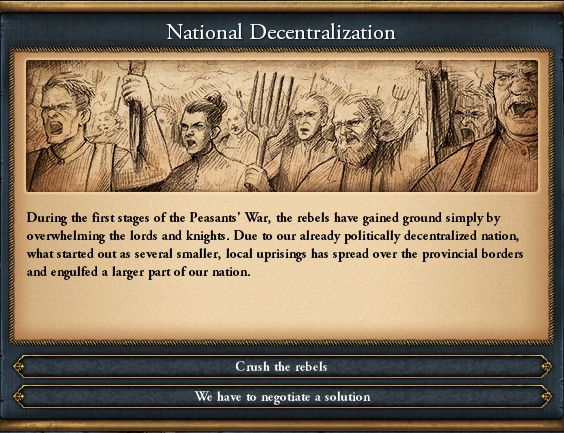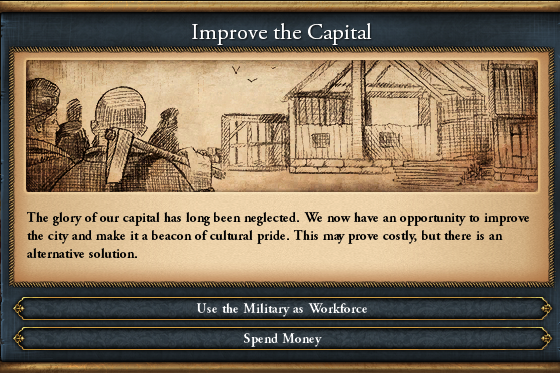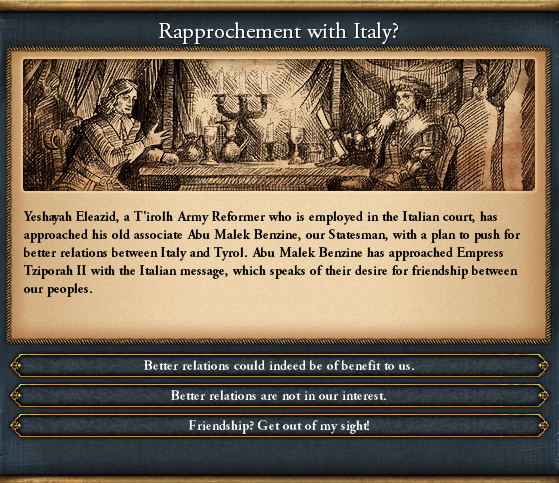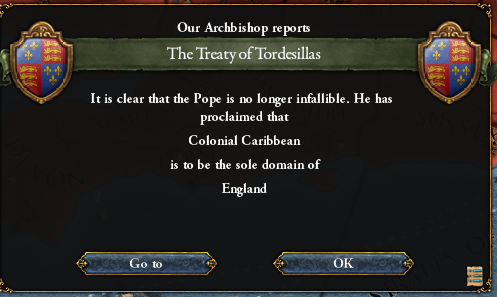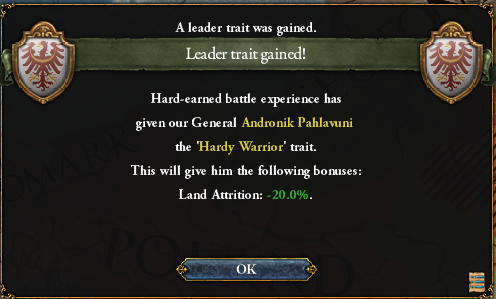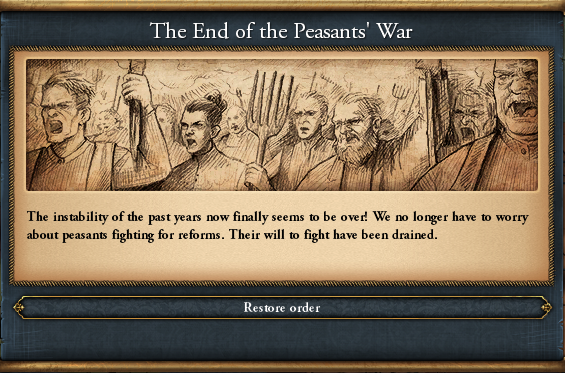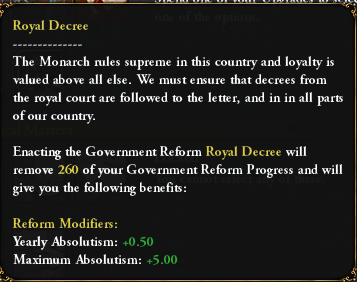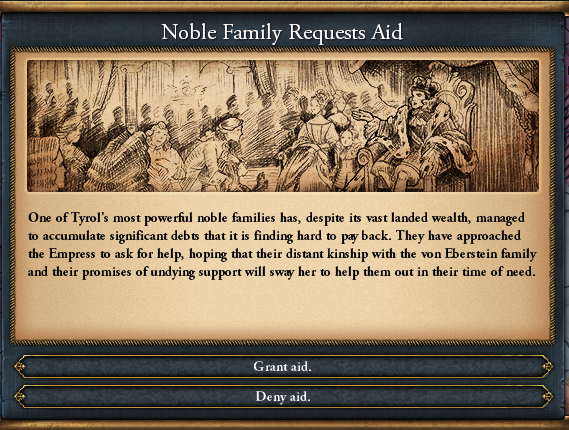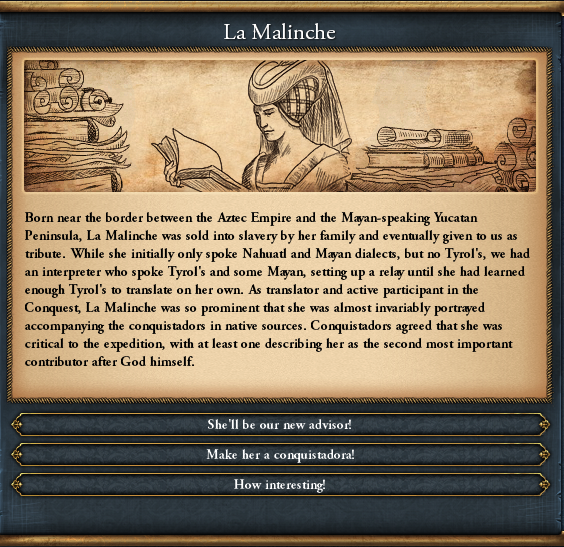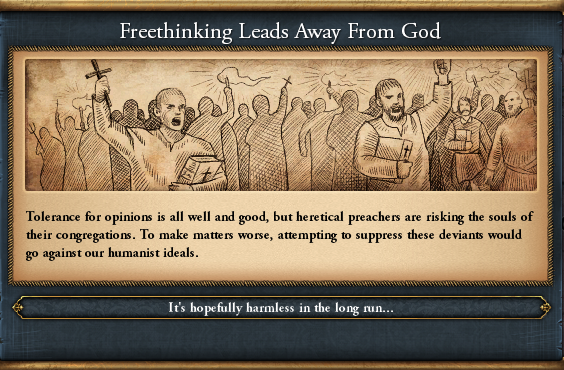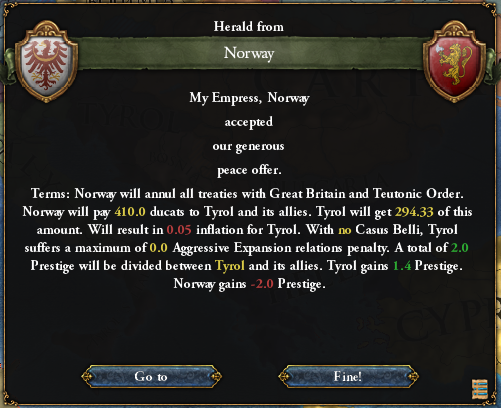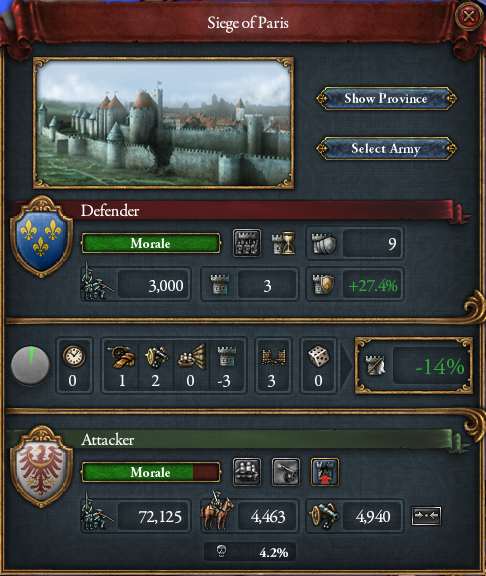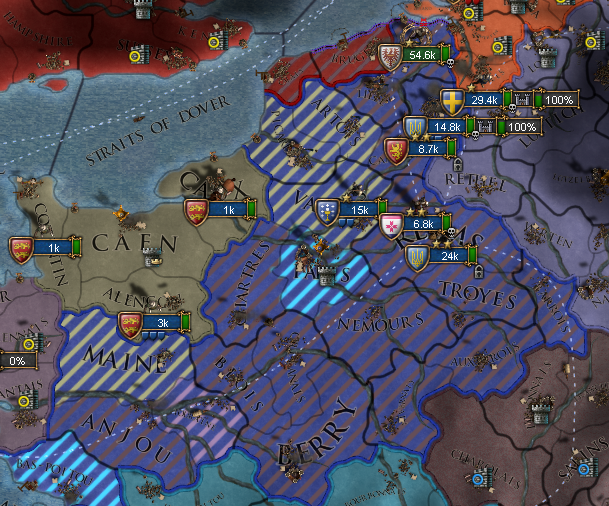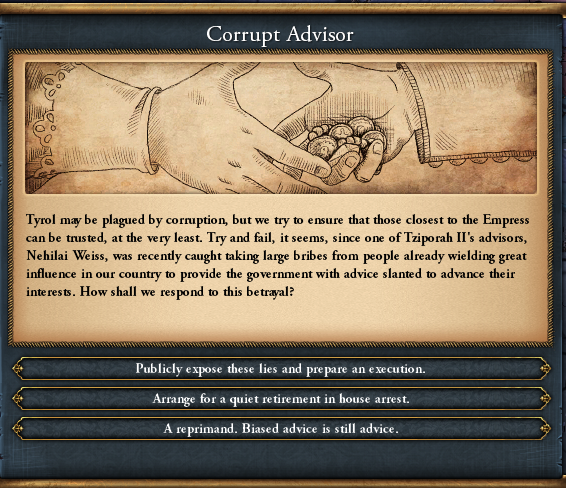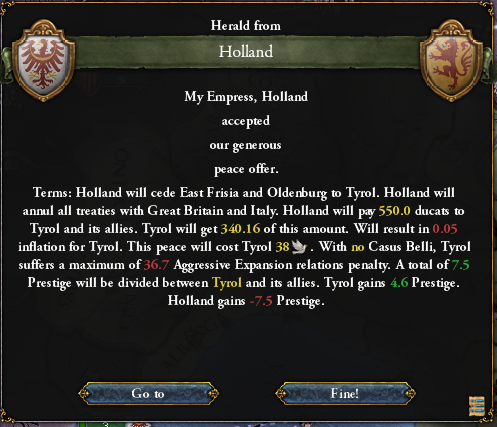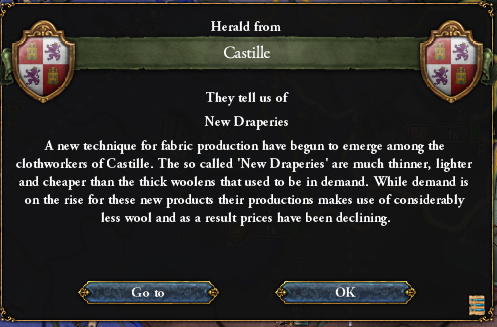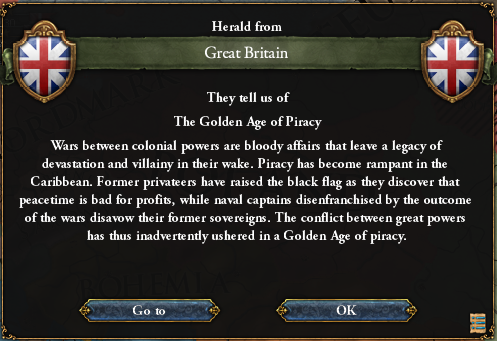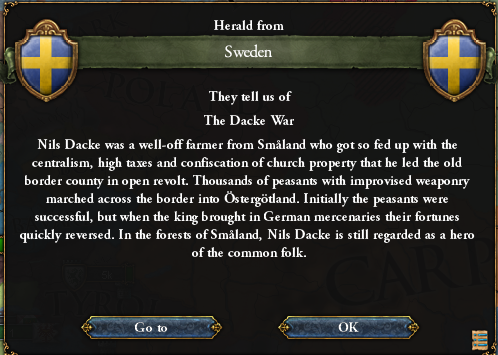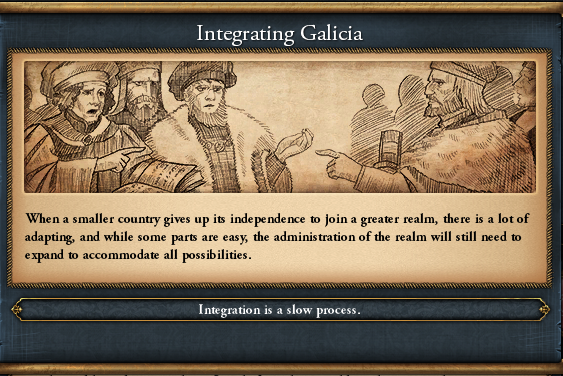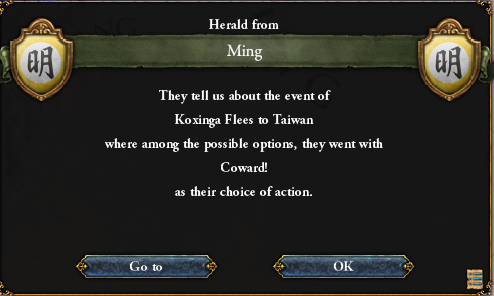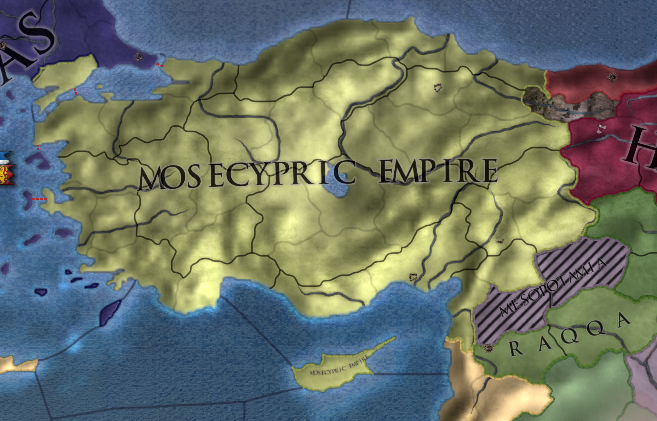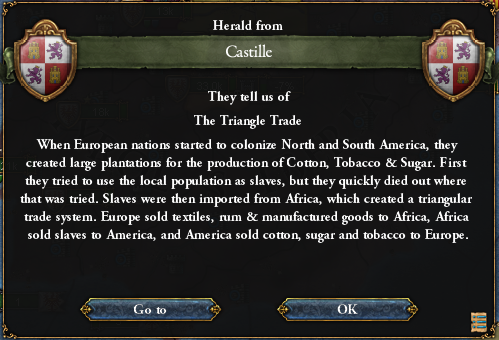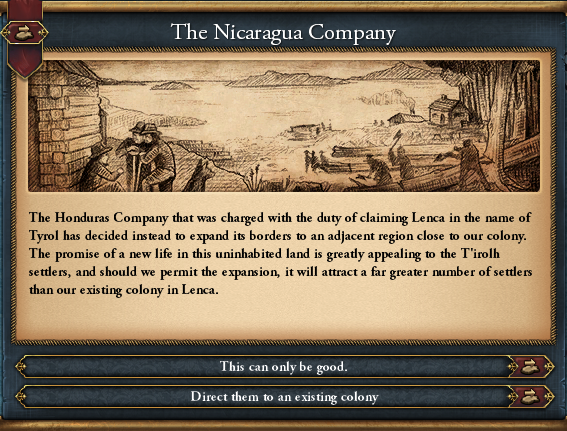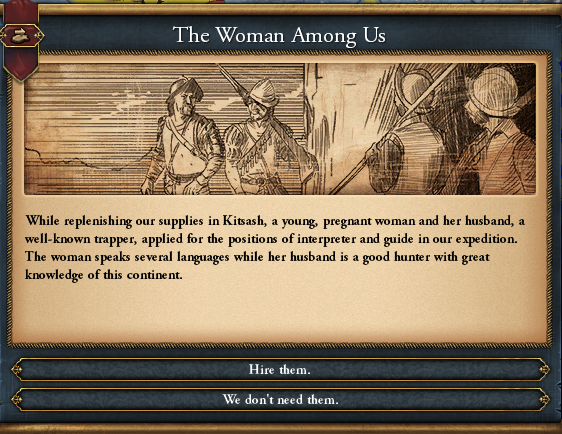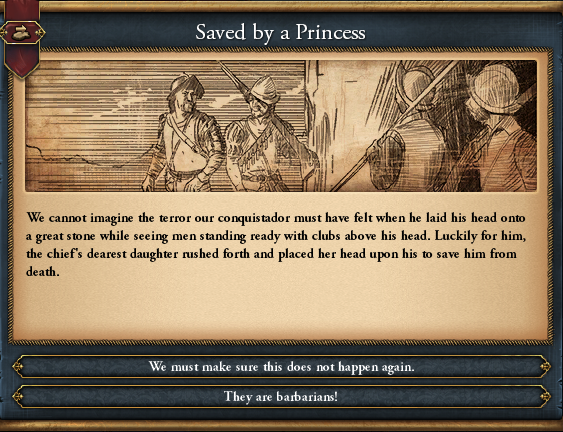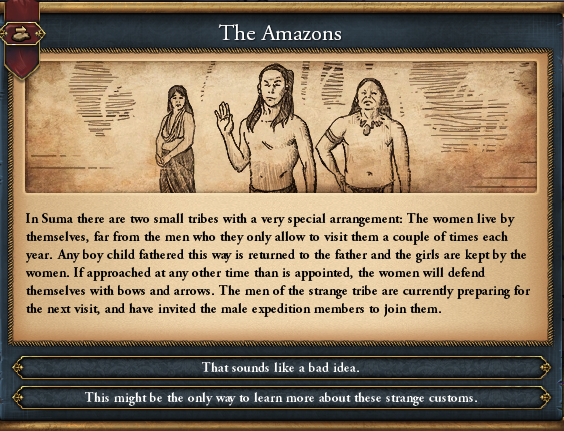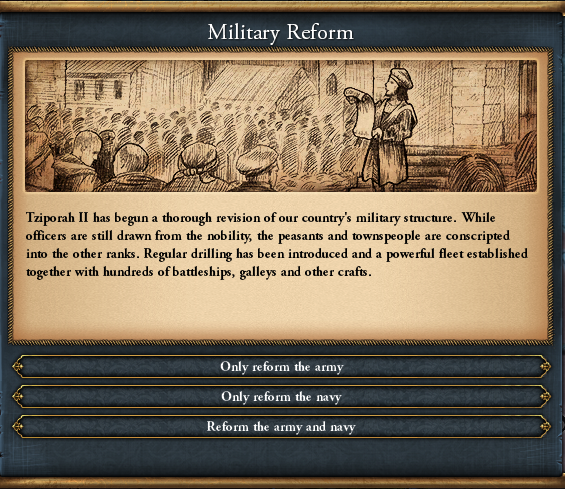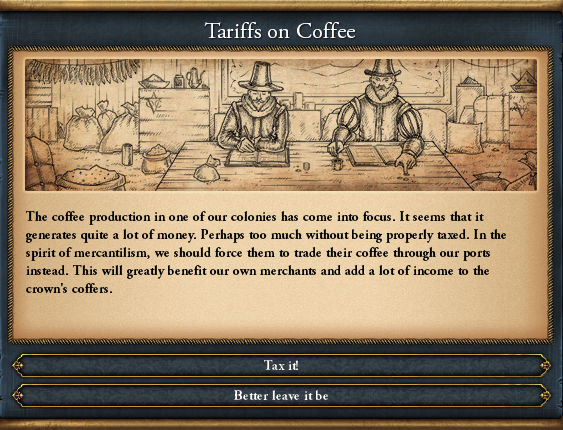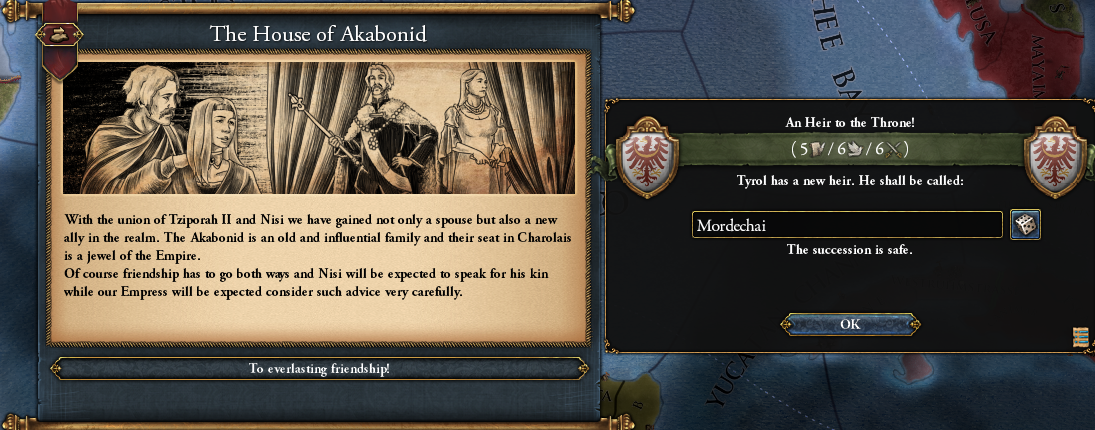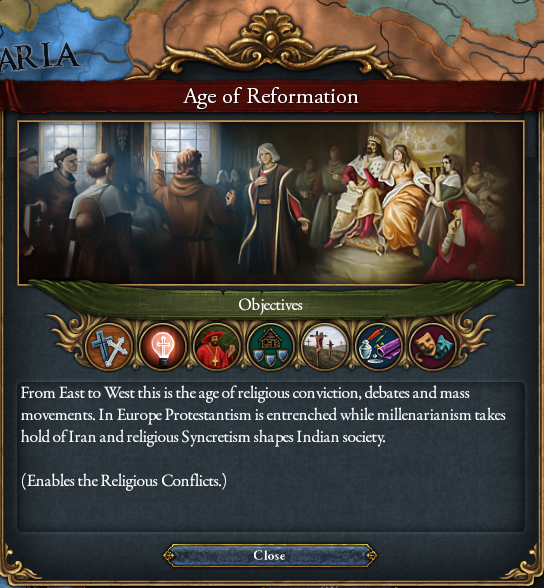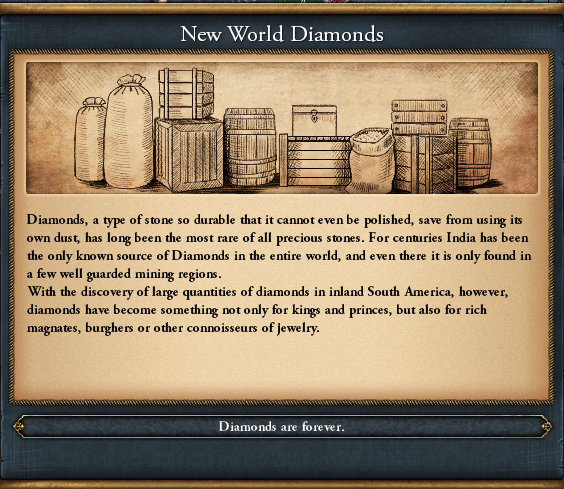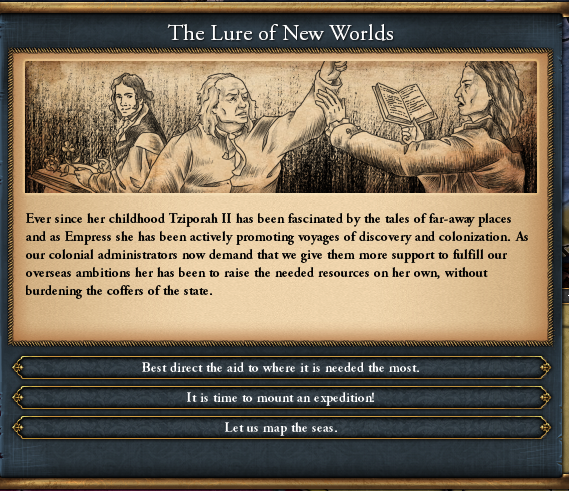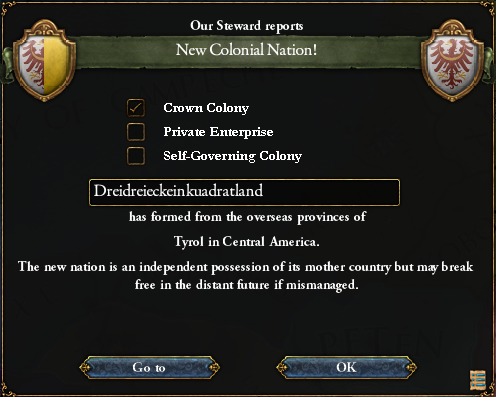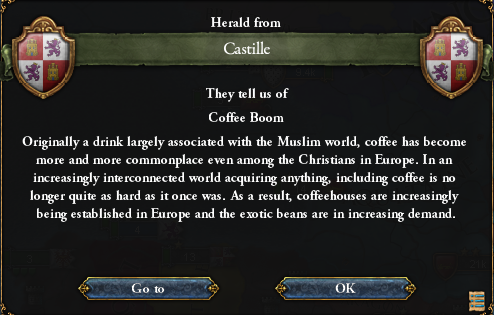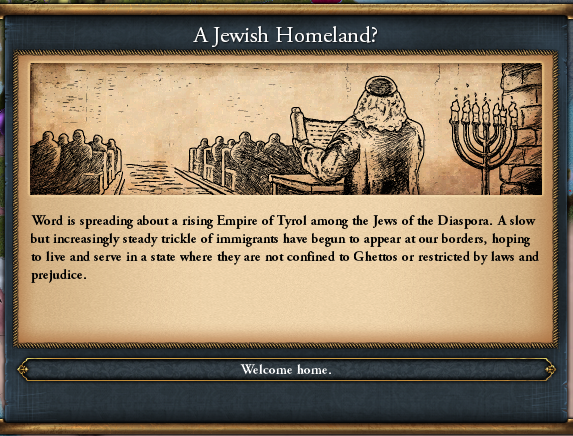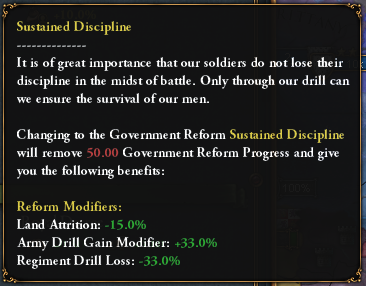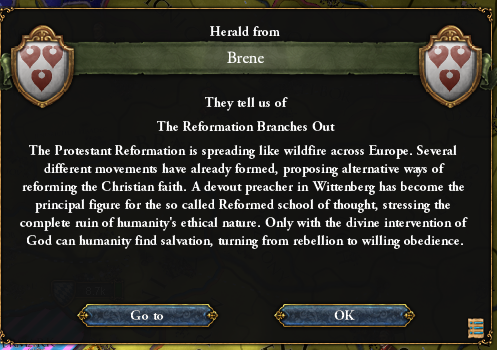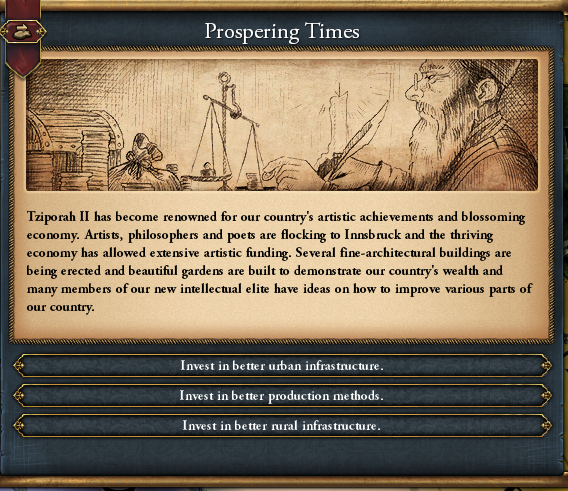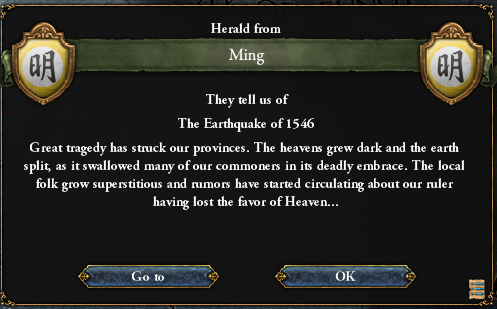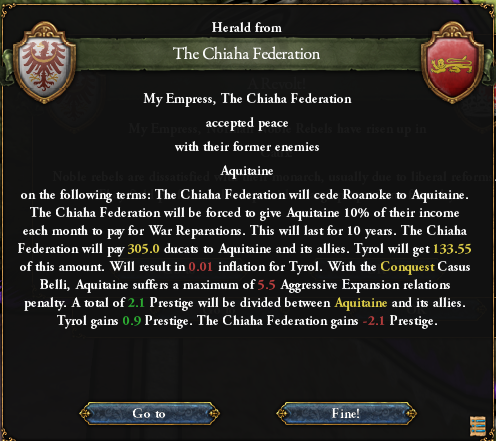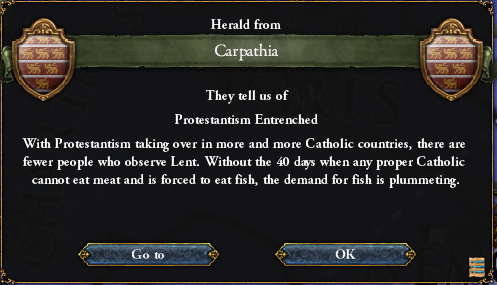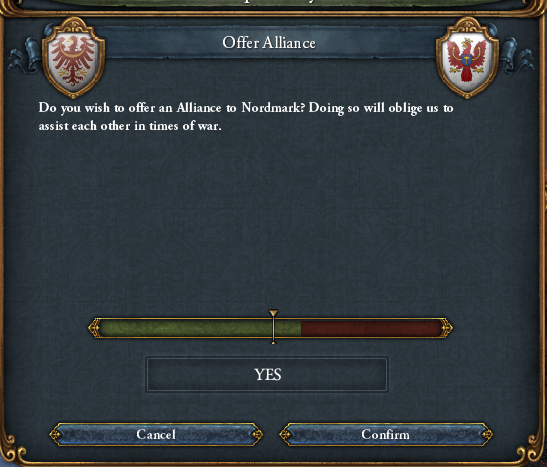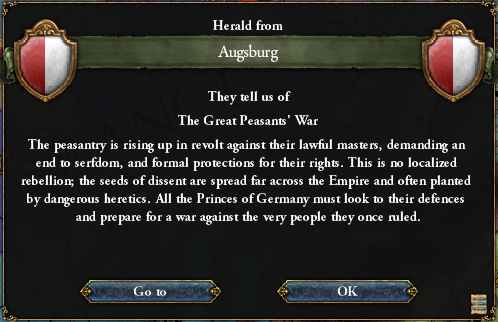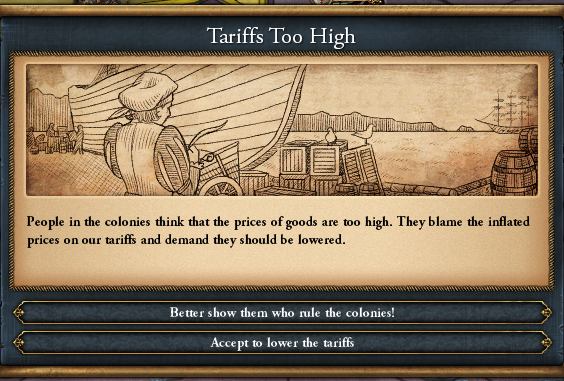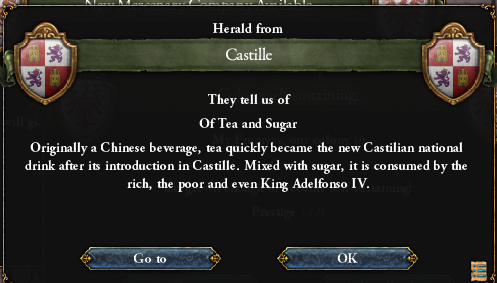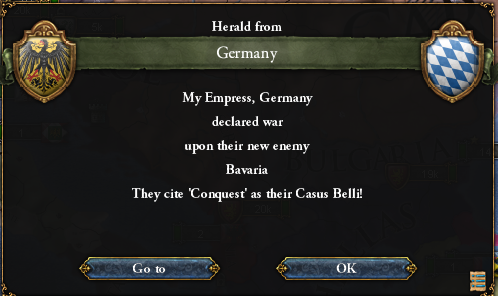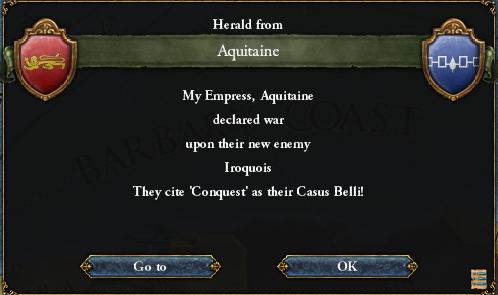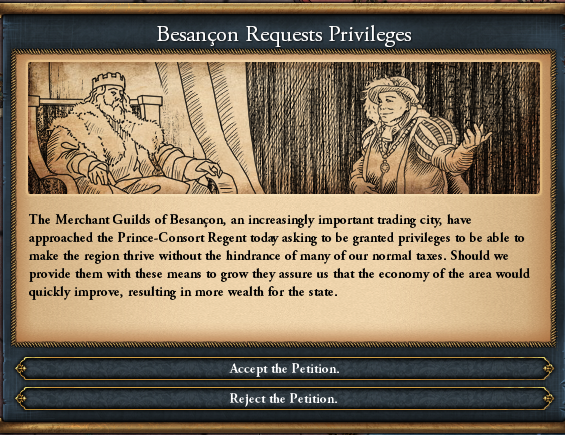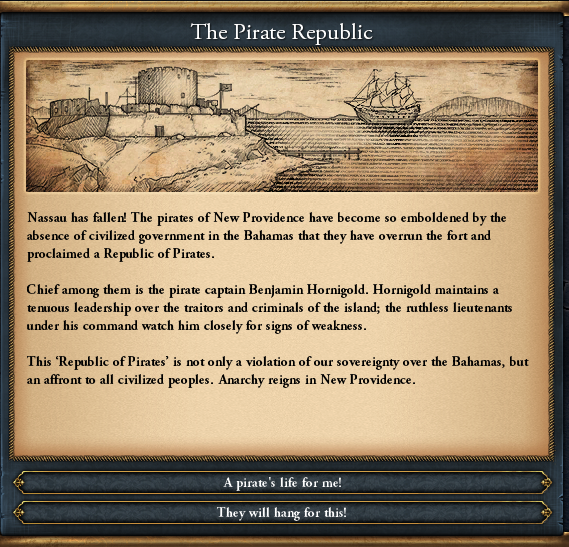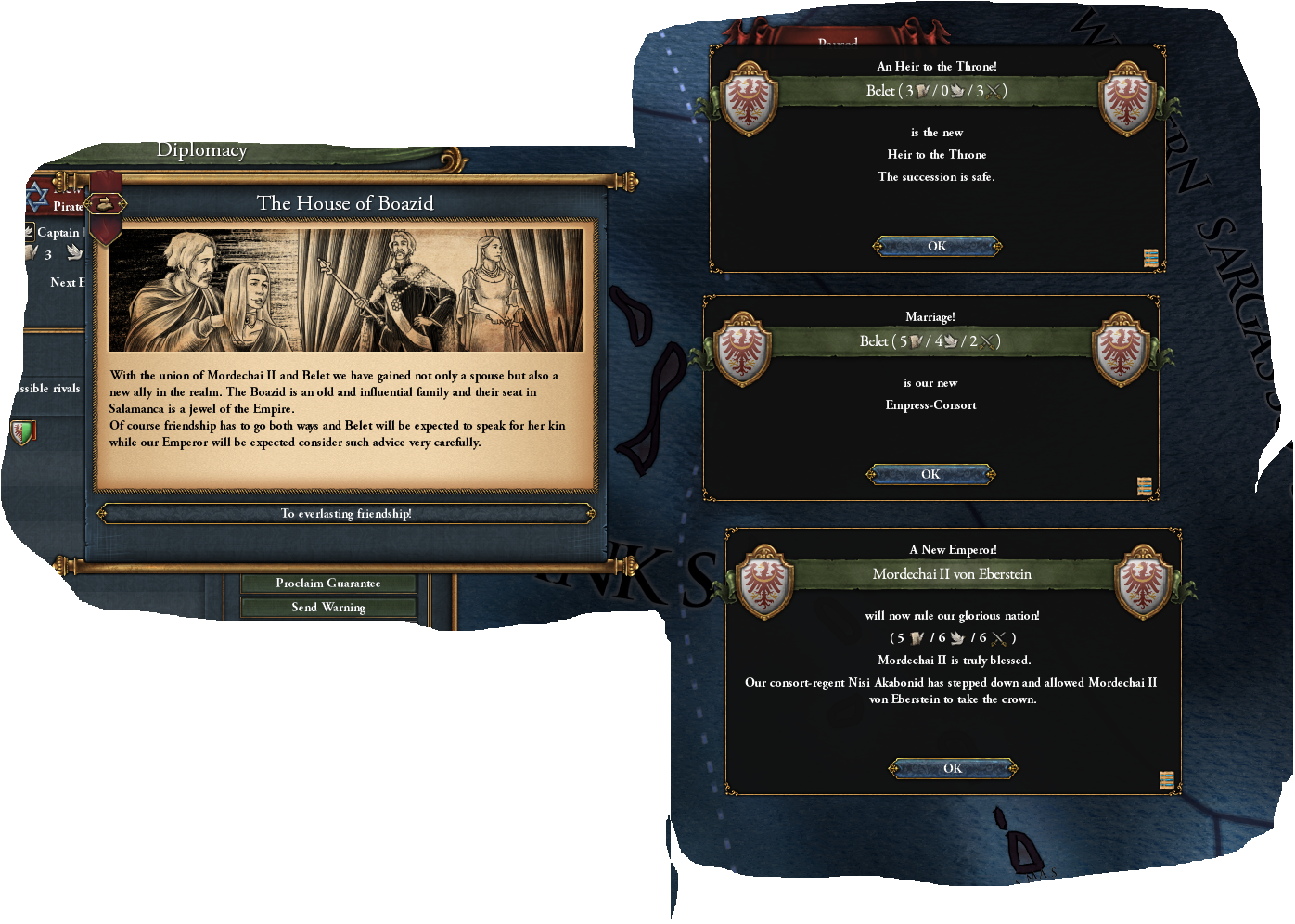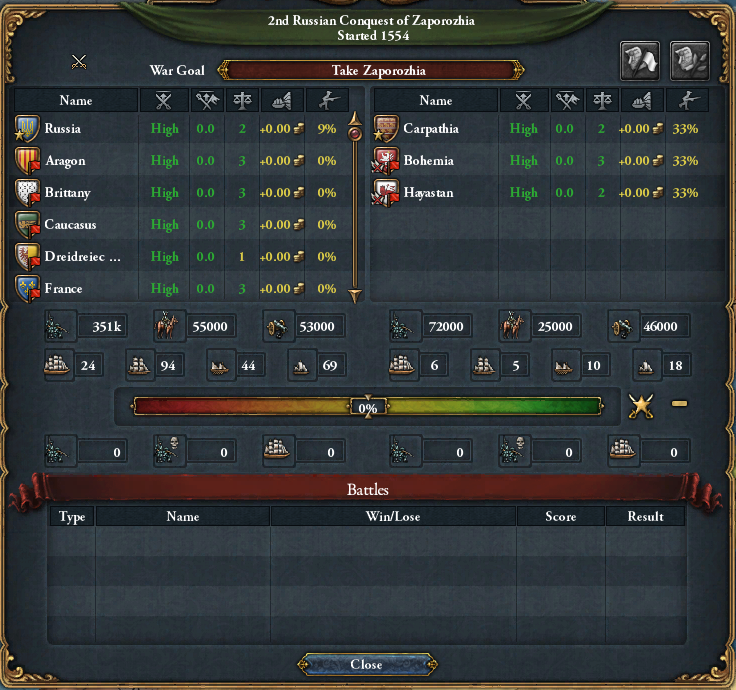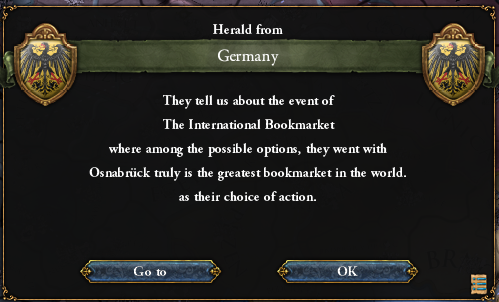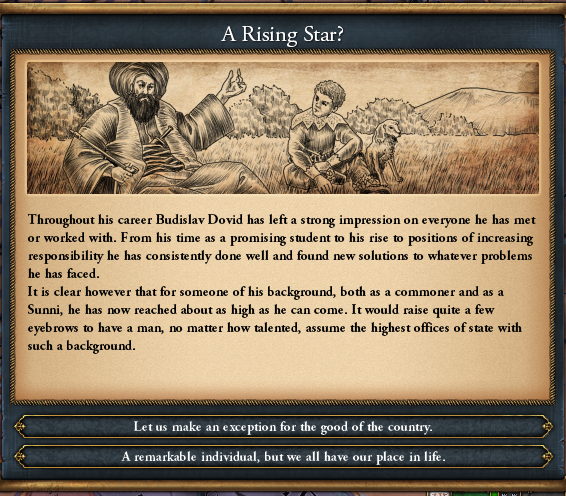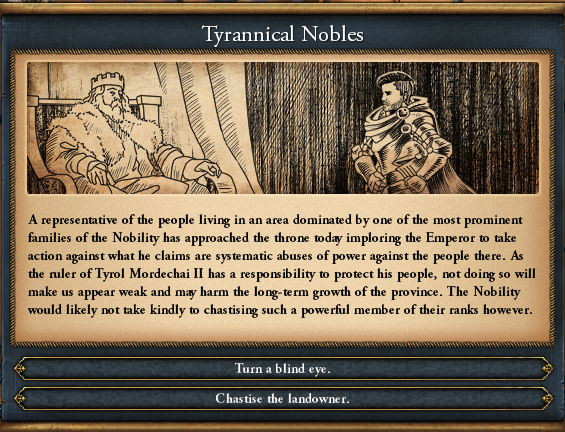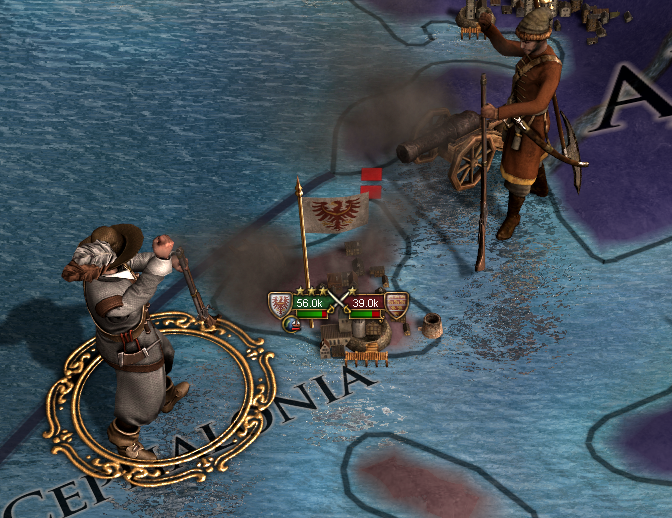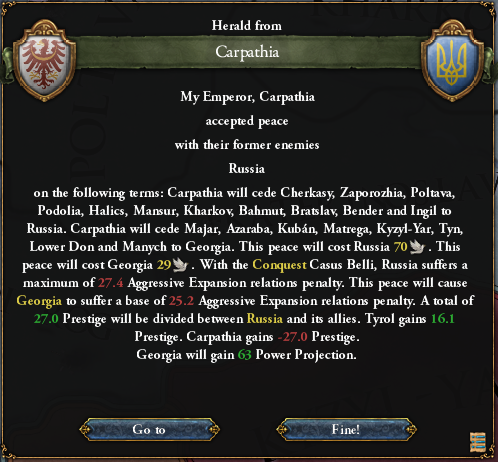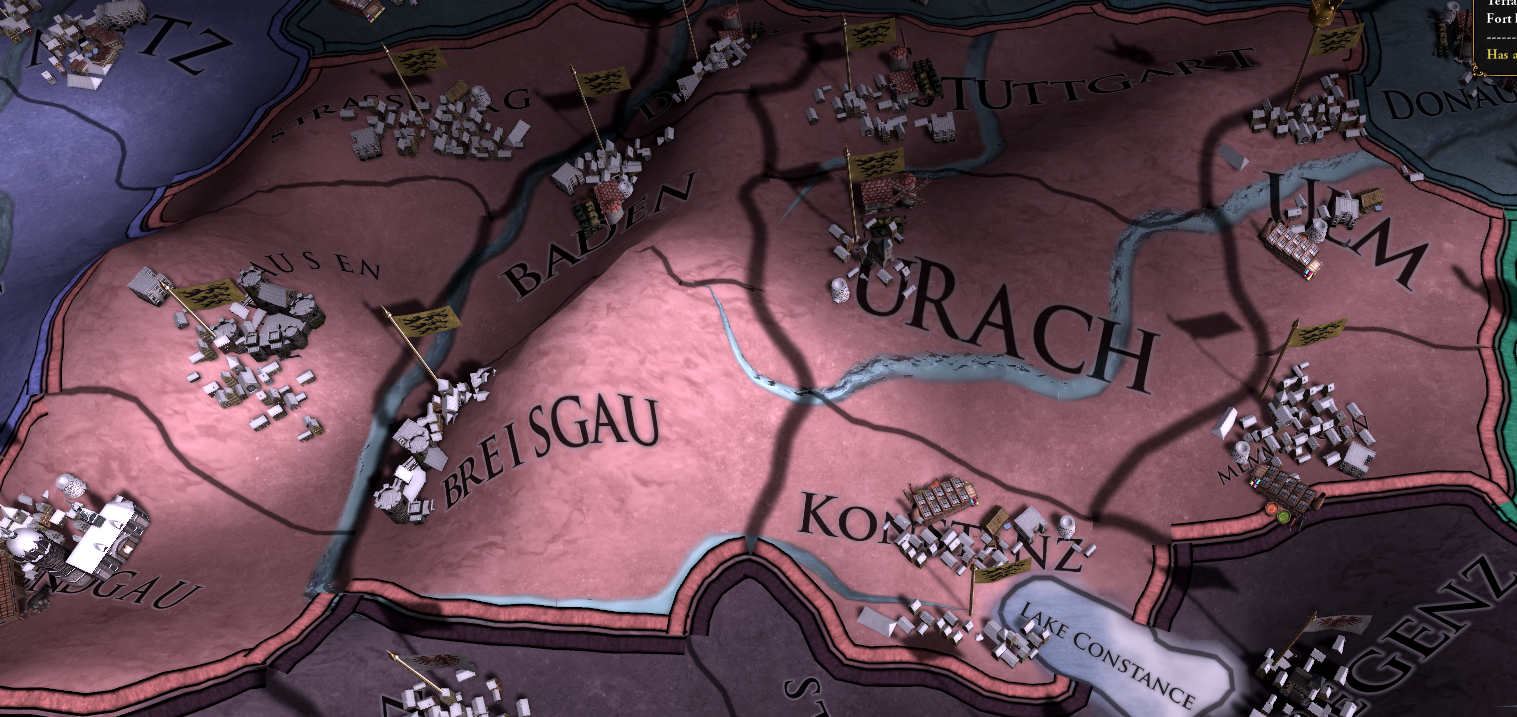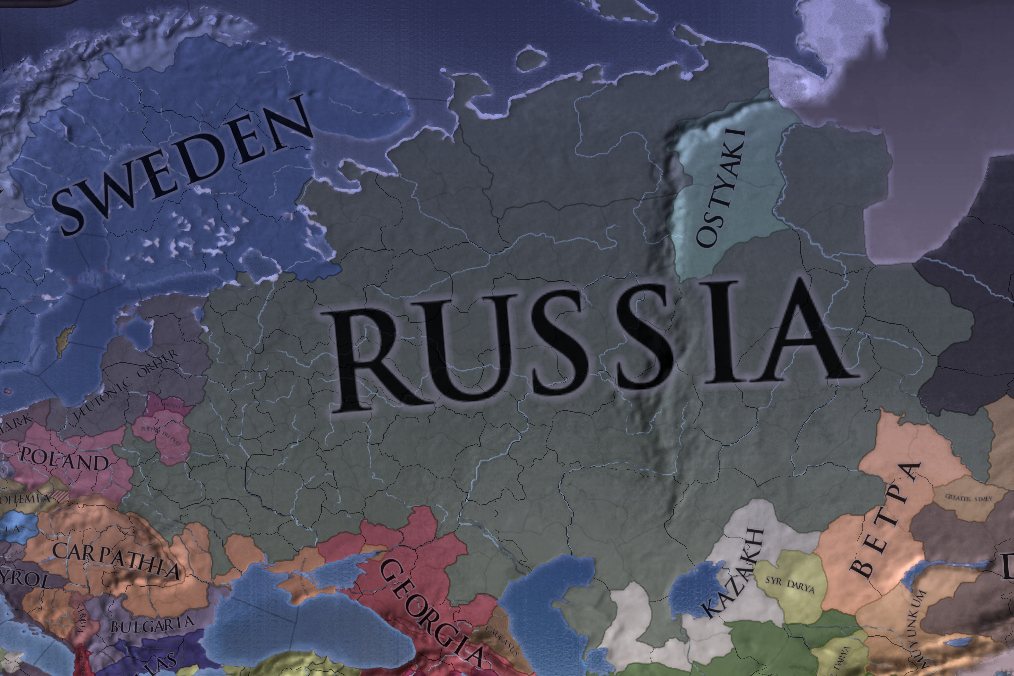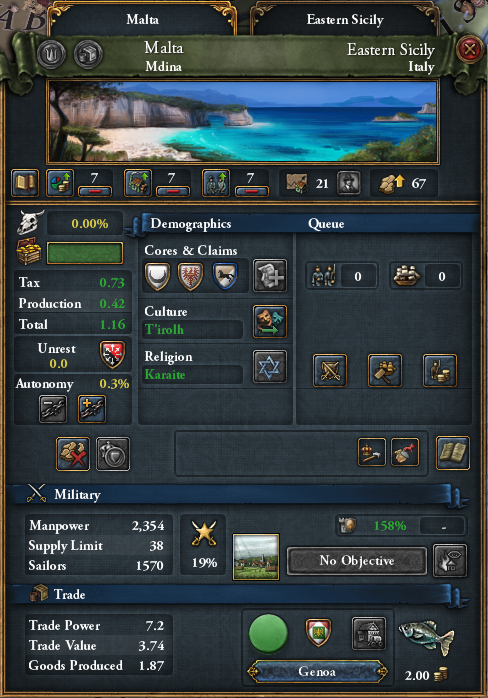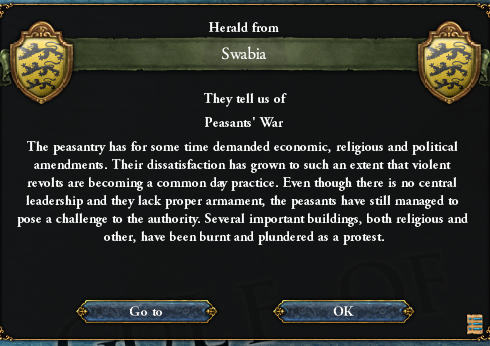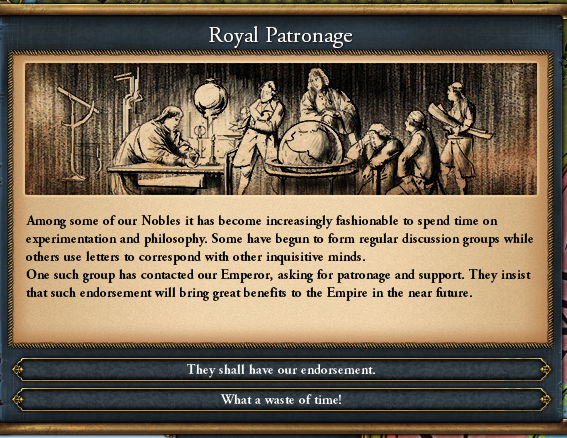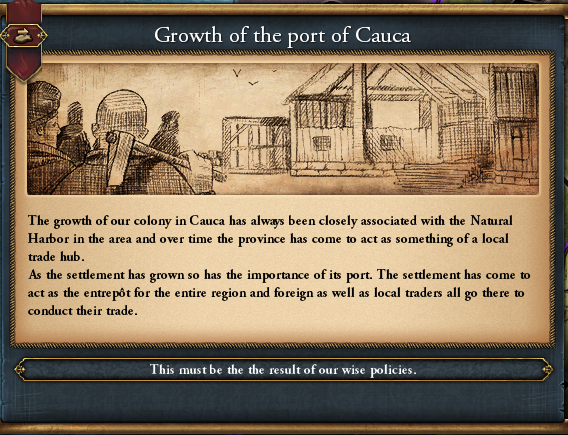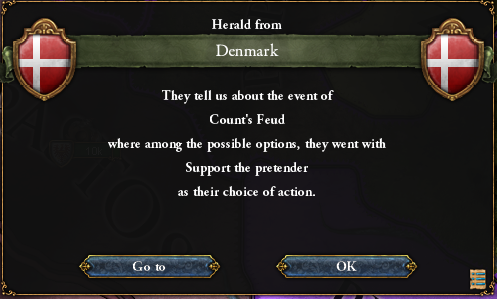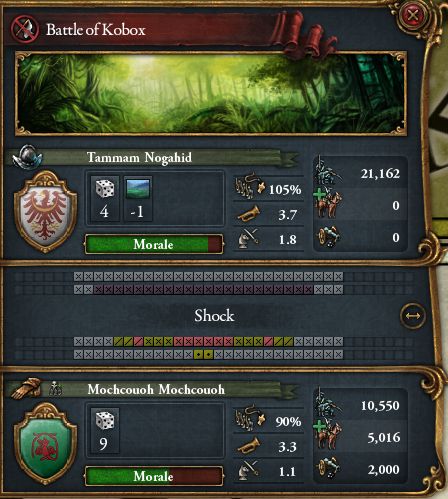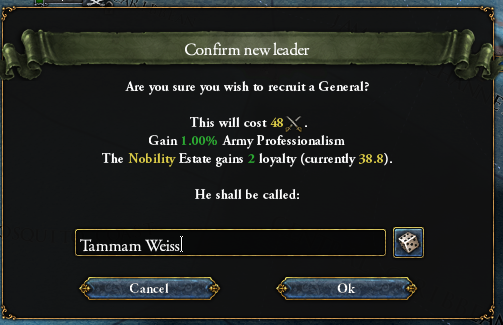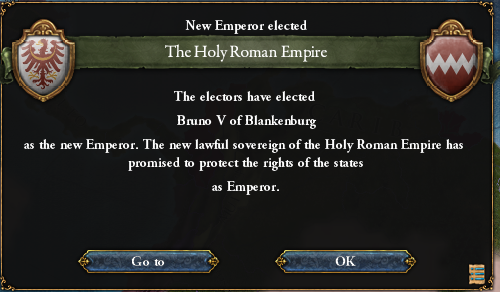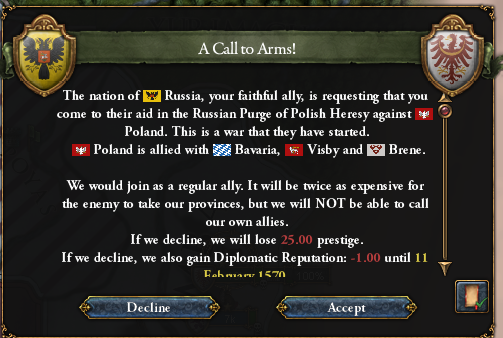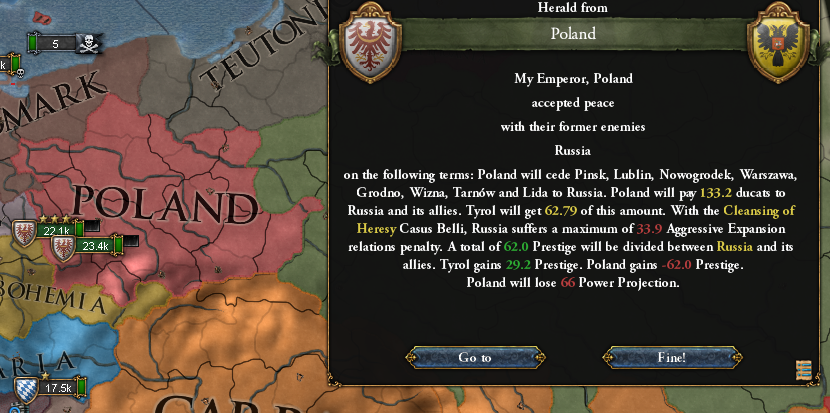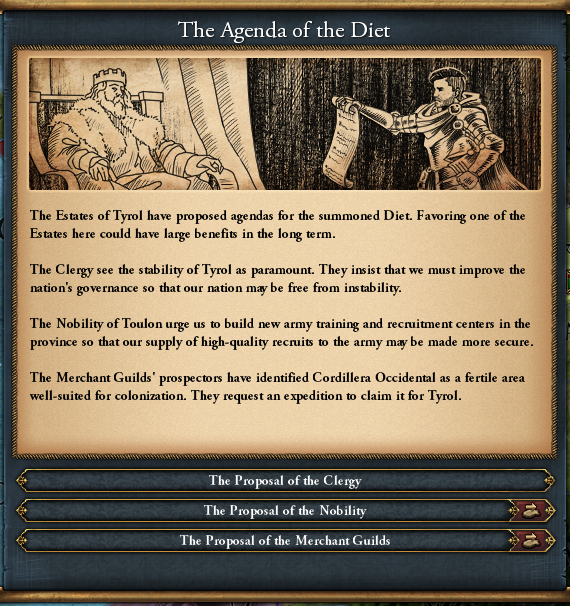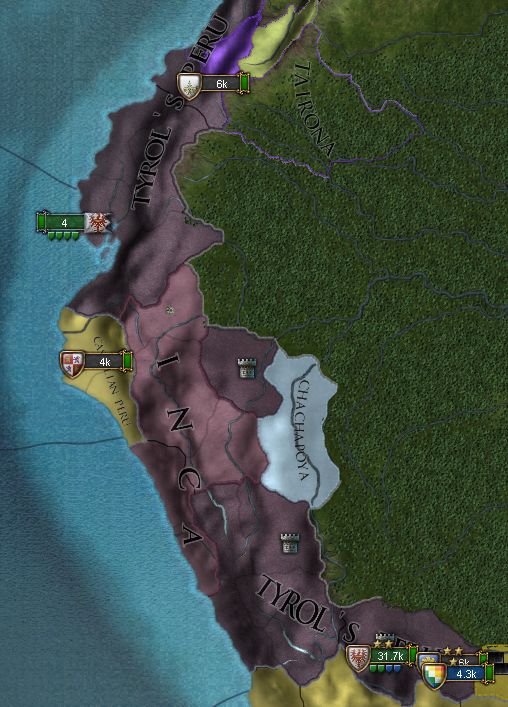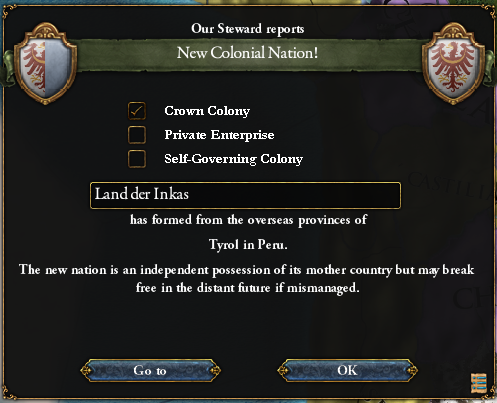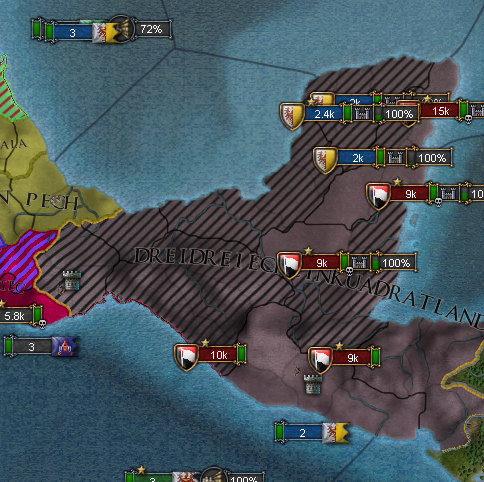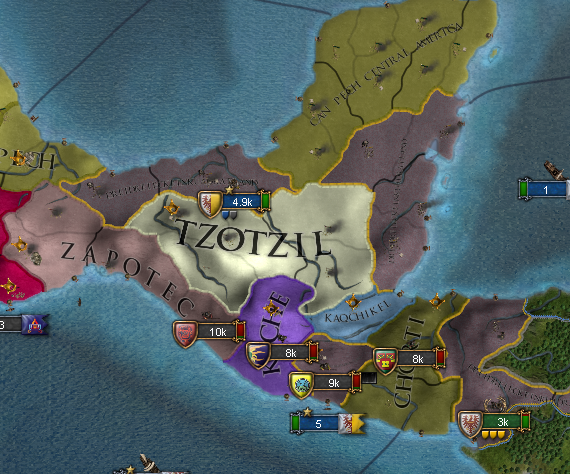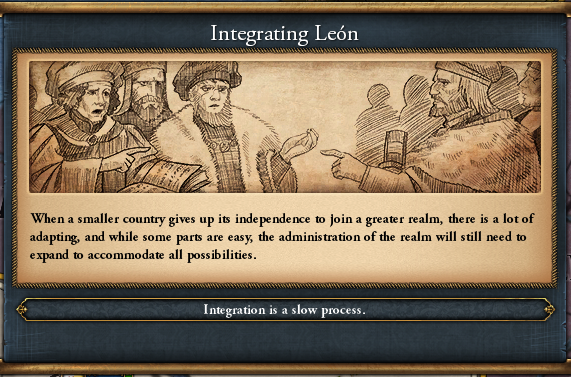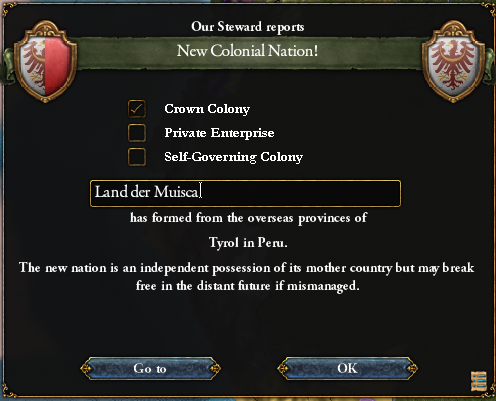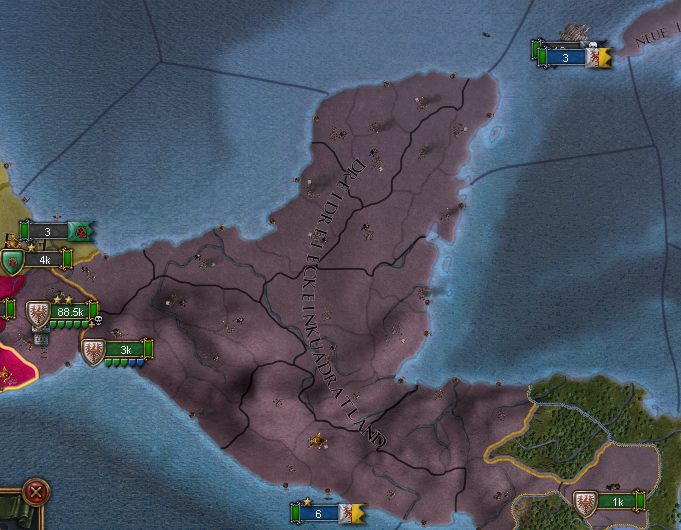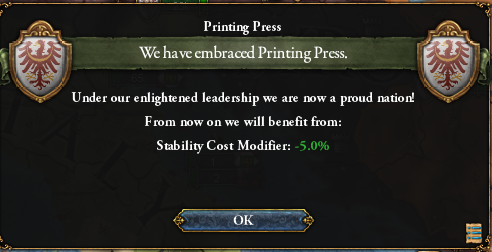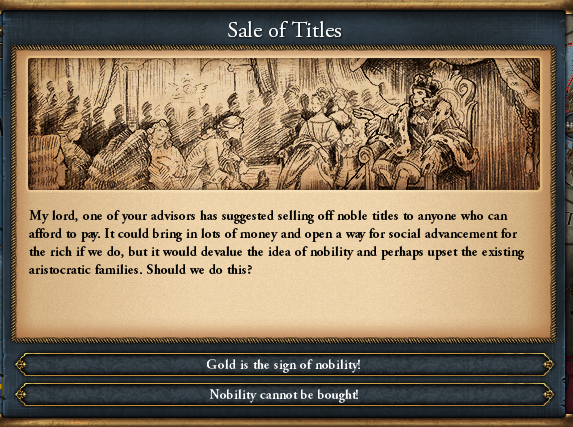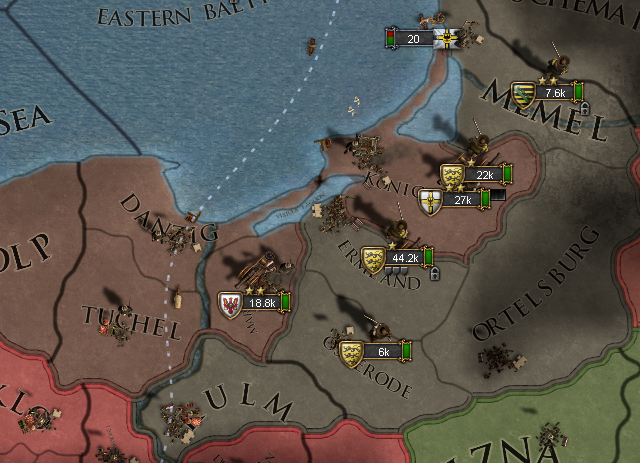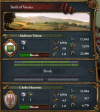1493-1543
Era of Religion and Violence
By the 1490's, it became apparent that Hezakiah V and Tyrol used a policy that abused Christian inheritance and legal systems to become kingmakers and puppeteers of smaller Christian realms. As soon as their fiefdoms were ready to be integrated into the Tyrolean vassal system, the became integral parts of the Empire, rather than autonomous vassals.
This also led to a more decentralised bureaucracy, as local adminisrators and governors could easily deal with local problems, while reamining in the creed of Tyrolean administration.
Of course, the Raananid family of Esther had expected Hezekiah to grant them some privileges to expand their trade network, since after all, Esther was a loyal spouse. Hezekiah happily gave them those, as the growing power of a merchant family could only be the best interest of Tyrol.
Sadly, in 1496, Ioane Pahlavuni died. However, he had brought over his entire family to make sure they all make a living. The family itself was descendants of once-landed Armenian aristocrats and had a military tradition. His son, Hovhannes, learned everything from his father, and by pulling the strings, his father managed to make his son a general in the army.
Soon, the abilities of Hovhannes could be tested. Sunni Andalusians rose up against the Empire in Murcia, hoping to kick the Tirol'h out, and estabilish a new Caliphate. Hovhannes easily outmaneuvered the 19000 rebels with his army of 11000 and defeated them swiftly.
News soon spread that Emperor Dezső II of Carpathia prepared an attack against Serbia. Hezekiah threatened to intervene in the war, for that the Carpathian emperor backed down.
While the first contact with the less-developed Miskitos of Mexico was turbulent, peace was achieved, and some Tirol'h people settled along the coastline as settlers.
Sadly, as Isaac made his way to explore more of the Carribean Sea, he contracted a strange disease not met by any European before, and died not long after.
As Hezekiah V became older, he began to drink more alcohol and mind-altering beverages than that was normal. One day, he exposed intimate details of his relationship with the court (completely drunk). When he was sober again he realised the mistake he made and paid money to people not to spread the event.
To achieve further tolerance in the Empire, one of the last acts of Hezekiah V was to pass a law that granted equal citizenship to all nationalities in the Empire, while also incorporating some local traditions into the legal code. This pleased many.
While laws were passed to respect the people, Empress Esther donated money to financially support those in need.
She became old, however, and died a year later. This pushed Hezekiah into deep depression, while he also began to drink even more.
He understood though that as a leader of a great power, he needs to take part in politics. Even though he protected Serbia from Carpathia, he still had to conduct a military campaign to make the Bosnians independent again. Due to the large difference in manpower, Serbia lost the war, granting Tyrol Ragusa and Kotor, denying Serbia sea access and making Bosnia independent again.
The policy of tolerance had started to pay off. Many Rabbinic have started to convert to Karaite as they seen that Karaitism is peaceful and tolerant.
In the area of the West Alps the Clergy accused the nobles that they are in fact encroaching upon clerical domain. Hezekiah had taken the chance to weaken the nobility and sided with the clergy in that conflict.
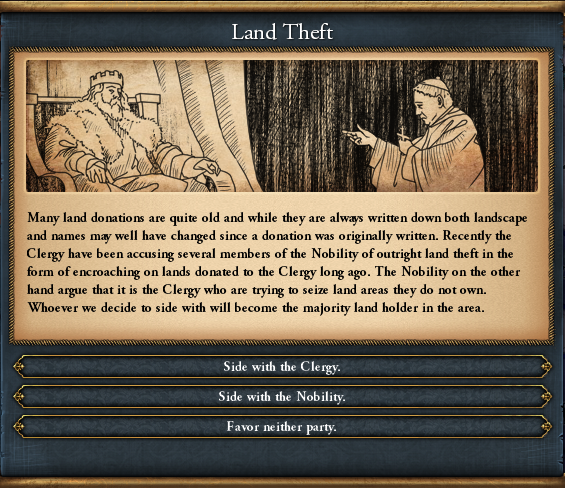
Strange news reached the court of Tyrol. With the help of the City Confederacies (a number of free cities ruled by the same mayor from a leading town, they have emerged from the collapse of Lausitz and Anhalt as duchies by 1453), Dalimil II of Bohemia have crowned himself Holy Roman Emperor. At the same time many German dukes were discontent with the descendant of Walter von Augsburg, who became Duke of Franconia by false fabrication, and his son claimed the German kingdom and the HRE with it. The dukes were so angry that they killed every single member of his family, and they invited Bótolfr de Normandie from the Norwegian branch of the English dynasty, to gather diplomatic leverage to kick the Bohemians out. At the same time they sought to defeat Tyrol and take it's Alpine holdings. To sour the realtionship, they sent an insult to the Emperor.
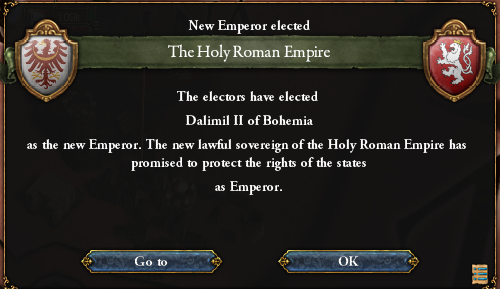
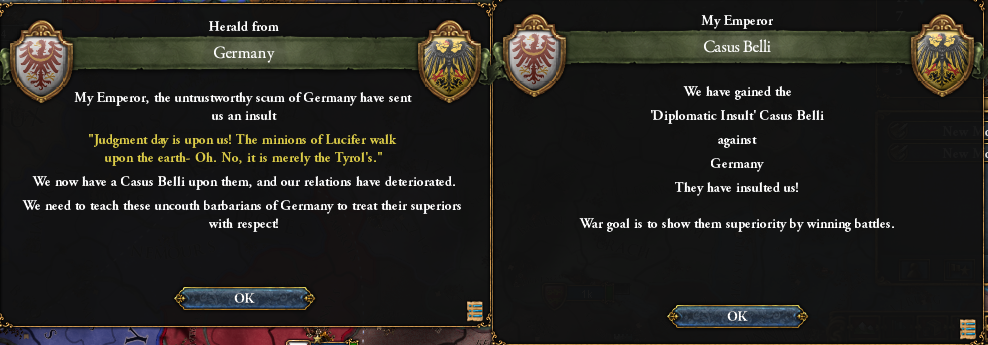

The Usamids have sent a Call to War to Innsbruck. It seems they tried to get the other dynasties in North Africa defeated. Tyrol always wanted to give them a taste of Tyrolean power, since they eyed hungily on Tirol'h North African land. So Tyrol joined the war.
Sadly Dudai Ginsberg had passed away. While he was an exceptional talent, the also sought cooperation with the natives. Now that he is gone, the relations with the people of the New World will surely turn sour.
The areas around the famed Glory Road of the Natives were colonized.
Alerting news have reached the Tyrolean court. Jerusalem fell to the Sunni Khaleelids. The Exodus will sadly restart again. This has shocked all Jews accross the globe as news spread like wildfire about the fall of Israel.
This was about the same time that the minor landholder Abu Malek Benzine caught the Emperor's eye. He was a Jewish Berber who used his local political leverage to further the interests of the Trade Company around Tangiers. As such he was invited to Tyrol, he was appointed as an advisor to the Emperor and the fate of his family had changed forever. They would lose their political power to gain more land generation by generation.
News arrived to Innsbruck that Castille chose the path of wrath and greed, and attacked the natives. This attack was the first sign that the support of a native-friendly colonisation policy was slowly decaying across all of Europe.
Shockingly the the ambitious Queen of England, Joan II had declared that she is the righteous sovereign of France, and declared the ruling Queen Adelaide illegitimate. This conflict will be known as the War of Queens. Even though Adelaide fought valiantly, after 4 years, Paris was captured, and Adelaide was forced to surrender and into a monastery, binding the French throne with the one in England. This war put Tyrol on high alert regarding the English empire-building efforts.
Soon tragedy struck the Tyrolean court. Isaac, the heir of Hezekiah V, had died due to a hunting accident. This would later give one of his siblings a chance to rise to prominence.
Meanwhile the Gaiaids convinced the Usamids to agree on a peace deal so they could drop out of the war.
Though Tyrol used it's occupation in Salé to annex the province, since the Gaiaids could hardly resist. This made the Usamid sultan angry, and he sent a letter to Innsbruck, denouncing the Emperor for the occupation and that would end the alliance after the war.
Meanwhile the idea of a generalized need to explore and tame the New World spread in Europe, as Tyrol carved out a colonial domain in the Carribean, while Castille colonized the Brazilian coast, and other nations started to prepare to claim the land for themselves.
The consequences of this could soon be seen. As the bond between the Americas and Europe strengthened, commodities started to flow between the areas. This later would be called the Columbian exchange.
The Russian Tsar thought that Carpathia is overstretched enough to gain dominion over the Black Sea, and declared war on them. He also called upon Tyrol, and the Emperor was happy to accept. After all, he and his ancestors created and maintained Russia to resist Carpathia. He promised that Tyrol would soon send over troops to help. The aching fact though was that the Pomeranian King had supported Carpathia, declared independence, and soon joined the war on Carpathia's side. They would soon be invaded though by an unlikely conbatant: Nordmark. The only duchy left intact in the area, they sought to expand their land. Backed up by Germany, they soon annexed Pomerania into their domain, which ceased to exist.
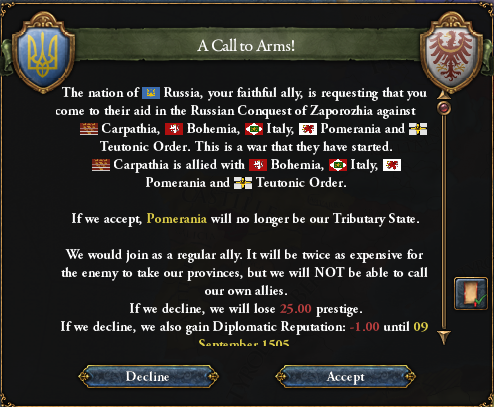
Soon, to join Russia, Hezekiah V made a peace deal with Tahert, to leave the treacherous Usamids. Tyrol took Constantine, gave back the land of Algiers to the city, and placed Tahert into a semi-vassal state. Their trade was nearly entirely controlled by Tyrol now and they also had to pay a huge amount of money.
The reality of how much influence the merchants held in the African territories of Tyrol could be seen on the major settlements themself. Prominent trading families have estabilished their own quarter in Ceuta, to the point that their little paradise bears a resemblance to Innsbruck.
While on the battlefield Tyrol mostly contributed to Russia through the occupation of Italy, sometimes, even though very atrocious, some Italians crossed the fortress and entered St. Gallen, where they were apprehended by Tyrolean troops. This was the most significant battle of the Italian front, since the Tyrolean army moved in so large stacks that the Italians feared to approach them.
However, joining the war on the side of the Rus proved a good investment for the colonies. As families wanted to avoid conscription, they took to the sea onboard of a huge ship and arrived in the colonies, where they manifested their best abilities to the locals.
Meanwhile, the situation of Bohemia was getting out of hand. Even though Emperor, Dalimil II hardly could inflict any control over his German subjects, and worst of all, he did not have a son. To ensure that Bohemia dominates the Empire over the inferior Germans, with the usage of legal loopholes, Dalimil passed the Pragmatica Sanctio without the consent of the Germans in 1501. This made most of the dukes angry and anti-Bohemia, but the Lobkowicz patriarch did not care.
The occupation of Italy bore its fruit, and the Italians were willing to sign a peace treaty with the Tsar. Trent would be ceded to Tyrol, and Italy would end it's association to rival nations of Tyrol and Russia.
By then, Tyrol was the ultimate head of the Jewish diaspora. Jewish families lived across Tyrol in peace and freedom of worship, while the inhabitants of the other Jewish realms were sure that Tyrol would defend them. This gave Tyrol quite the political power to excercise. And it will surely do it for the greater good of the Jewish people.
Interesting may it be, the first colonizer from Europe to colonize North America would be Aquitaine, as they settled Nouv. Angouleme, and fought the natives for more land.
Without the chance of Tyrol marching on Buda, the Carpathian Emperor convinced Russia to give some border provinces to them, and sign a peace deal. Though humiliating, this is the biggest Carpathia would get, while Russia would only continue to expand.
Abusing the weakened position of Tyrol, the Holy Roman Emperor leveraged his power over the Bishop of Rome to call a crusade on Tyrol, “to cleanse Europe from the Jewish servant of Satan”. This would have serious effects on Tyrol, but also would embody the final straw faithful Catholics had to endure under the Pope’s brutal oppression.
After years of assimilation, the Kingdom of Navarra was ready to be integrated fully into the Tirol’h Empire. As soon other subjects in Iberia would follow, it was clear that Tyrol wanted to unify the peninsula.
Later in his life, Hezekiah V had developed a rather brutish attitude of calling anyone names if they did something you did not like. This of course spread far and wide, disrupting the diplomacy of Tyrol.
Hezekiah V was getting senile. He did not control his actions by then. He did not manage to sire a son, and as he was getting old, the fear of “another Mose dynasty” became apparent. His advisors suggested to the Emperor to name her talented eldest daughter Tziporah heiress to the Empire, to avoid another succession crisis.
To appease the noble houses of the Empire he married Scolaster, one of the offsprings of the many Eberstein branches. This appeased the nobles, while Scolaster cared for the old man, helping him whenever she could.
Hoping to abuse the situation of the Emperor and the position of Scolaster the nobles asked for recompensation for the fact that a woman would sit on the throne of Tyrol. His advisors advised the Emperor not to give in. That may have angered the nobles but they were in no position to resist, and still remained loyal to Scolaster and Tziporah.
Soon grief struck the Empire. Emperor Hezekiah V had passed away. Tzipporah II has been coronated, and her warrior nature and the expansion of England into continental Europe made her start the most destructive war humanity has ever seen till that point in history.
She soon married Nisi Abramovitch, the young head of an ethnically Eastern European Ashkenazi family that held significant trade power in Poland and Russia. He operated from Forcalquier, where his family relocated in order to avoid persecution. They had time to know each other and that quality time has resulted in the birth of Hezekiah, a boy to inherit the Empire. Since his family was very angry at the fact that this would give all of their trade network to Hezekiah, Nisi signed an agreement with Empress Tziporah which stated that his trade network would pass to his younger brother’s line upon his death.
As the Christians also wanted to colonize the New World they strived for justification for their control over the lands. Only Castile was lucky enough to actually grant them legitimate claim to the area of Brazil. Brazil would be their greatest source of power against the Tyroleans. Without that, they would not stand a chance.
As the ruler of Tyrol changed, many nobles felt that it is now time to take control. They began to illegally tax merchants, and those who refused were killed, their goods seized. The situation became especially severe in the Kingdom of the West Alps. Tziporah II had seen that such outrages have to be contained, and placed guards on major routes, who have often clashed with noble retinues.
Soon Tziporah II devoted herself to pass reforms. The clergy have been stripped from most of their rights, while land was taken for the crown. As the nobility felt endangered, they rebelled. The merchants, though grew stronger day by day.
The first large rebel army rose up near Avignon. Of course, the military was ordered to put it down, but new nobles emerged day by day who rose up against the Crown.
This was the time when another talented member of the Pahlavuni family, Hripsimeh, rose to power. He was granted command of the army to deal with the nobles. And he did a splendid job.
The colonial domain of Tyrol was also expanding. Baruchinsel was the new addition to the domain. I should not forget that Tziporah, in order to better administer her large Empire full of Non-Jewish people, had adopted German as the court language, and the language of governance, rather than the old Israelite one, which made administration inefficient over time.
Meanwhile, as merchant influence spread out over all of Iberia, the burghers began to sell Castilian textiles in Innsbruck at a ridiculously high price. Needless to say, this made both them, Castile and Tyrol very rich, as demands skyrocketed for “Iberian clothing”.

This peaceful exchange would come to an abrupt end, as some pro-Tirol’h Galician nobles revolted against Castile. Tyrol used this opportunity to declare war on the Castilians. Needless to say, the Iberians stood no chance, thus a peace treaty was soon signed. The Tirol’h vassal Galicia would get Galicia proper, the Tirol’h vassal Leon would get Castilian Leon and Asturias. Tyrol would also seize a chunk of the Castilian colonies in Brazil. With this treaty, Castile shrunk to the territory of the original kingdom and the territories of Coimbra and Beja. Soon they would even lose that chunk, as the Andalusians rebelled against the successfully. Headed by the last Umayyad, they sought to conquer Iberia and establish a new Caliphate.
This was also the era of technological innovation. Soon even the Europeans recognized that Chinese firearms were superior to European iron weaponry, and Tyrol started to create elite regiments trained in the usage of this Chinese weapon.
As the influence of the burghers spread they began to crack down on clerical authorities, refusing to pay the tithe to them and even persuading commoners not to. The Empress was neutral on this matter but the fact that she only asked for a mild reprimand had sided with the merchant class.
The traders of Malta have petitioned the government to give them some monetary aid to expand the coastal defenses of the area, as Usamid piracy worsened on their island since the alliance was broken. The Empress was happy to oblige, so that the vile Usamids won’t get away with their crimes.
Soon the fourth, unspoken social class had enough. The peasants, chafing under the bureaucratic ownership of the nobles and the exploits of the merchant class, have risen up and demanded serious reforms, if not the total destruction of the current social order.
This revolution made Tyrol realize to obsoleteness of the technology of their armed forces. Although Hripsimeh won Tyrol battles, without his tactical knowledge Tyrol would lose to the masses. The armed forces were gifted with money from the state to prevent a more dark disadvantage, but after the war, Tyrol would need to reform it’s military if it wanted to survive.
Soon the peasants demanded a legal release from their services to the landlords. The remnant of the feudal precursors of Tyrol, this state was only less harsher than the ones in Christian Europe. As the Empress could not afford to turn the nobility against her rule even more, she decided to enforce the system that Tyrol’s neighbours called serfdom.
Due to the uprisings, Tyrol has entered a state of decentralization. Empress Tziporah had realized that this is bad, but she faced a dilemma. She would either negotiate with the peasants or restore order through crushing them. As a warrior Empress, she chose the latter.
She also realized that she would need to develop the capital in order to avoid such uprisings , as the fourth class had no power in the capital. This draining of political power would ease the whole ordeal with the peasants greatly.
She also came to reconsider the diplomatic situation of Tyrol and became more friendly towards other countries. For Italy, they employed a Tirol’h army reformer who would serve as a link to create more friendly relations between the two countries.
Seeing that Tyrol is in turmoil, the Pope had granted legitimacy to England to colonize the Caribbean, an already mostly Tyrolean domain. This raised tensions not only between the Catholics and the Jewish, but between England and Tyrol.
Sadly though Hripsimeh was killed by a lowly peasant on the battlefield, so Hovhannes’s son, Andronik replaced him, who proved himself on the battlefield under the service of his uncle.
With his courage, the peasants have been finally defeated, and the uprisings could end.
After the rebellion, a system of royal decrees were introduced to ensure the absolute will of the monarch. This would contribute to the restoration of stability quickly, and Tyrol would recover with the oversight of Tziporah II in one year.
Seeing the fast reconstruction, large noble families began to ask for financial aid. Though Empress Tziporah would prefer to keep them weak so she granted them no aid.
To ensure order, Empress Tziporah with the help of the Imperial Council had passed the Feudal De Jure law, which made the Tyrolean system akin to the Christian one.
As soon as stability returned, Tziporah was already eyeing foreign conquests. She invited La Malinche, a native Aztec woman who agreed to help the Tyroleans navigate in their wars against the Mayans. With Tziporah’s abandonment of a peaceful colonization policy, the idea that Europeans and natives would live side by side was truly dead.
Hoping to gain land the Autonomous County of Salamanca declared war on the Andalusian Caliphate, in order to gain some land. Too bad they would lose, but the fact that Andalusia had the audacity to dissolve the entity, conquering Salamanca, and creating a Converso Catholic county of Avila, made Tziporah truly furious, she vowed to destroy the Caliphate for violating her sovereignty.
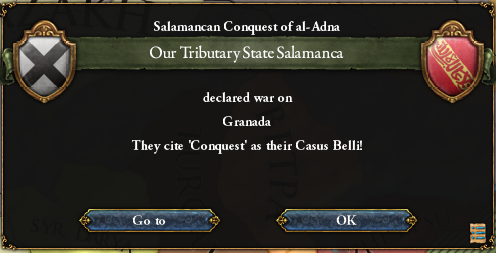
Tziporah II then looked at the map of Europe. Aside Tyrol, there was one more great power in the Western half. England and the House of Normandie. They held the crown of Norway, Germany, England and France (PU), while Holland was held by their close relatives, the d’Eu. She was furious. She sent a messenger to each of her allies to prepare for a war that would end English hegemony over Europe. She also made an alliance with the resurgent Sweden, who have defeated the Sami and the Finnish, and they were yet again the supreme Scandinavian power. She also promised them that she would sponsor their attempts at Scandinavian unification. She also called on the assistance of the Rus, Aquitaine and Bulgaria. This truly Europe-wide coalition would face English hegemony when Empress Tziporah declared war on England after the death of Queen Joan II, with the hope of securing an advantage, on the 7th of July 1520. Quickly the most active front became the French-Aquitanian border region, where the Battle of Nivernais was fought, won by the Tyrolean forces, It is also worthy to mention that Andronik passed away by a drilling accident, so his brother, Gagik inherited command.
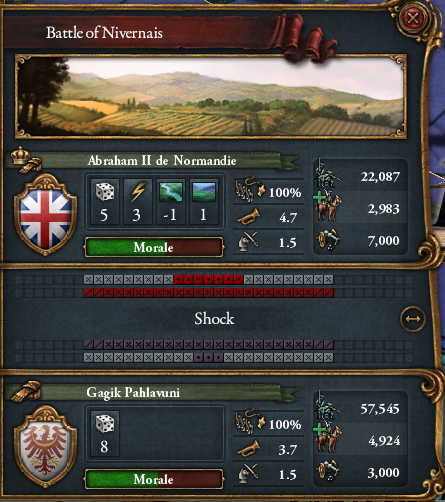
This was the time of free-thinking across Europe, as philosophers and clergymen began to question religious dogmas. Tyrol accepted them, but it created inner strife between the rabbi, so it mostly had negative effects.
The first nation to capitulate in this great war was Norway. The Norwegian nobles and Tyrol agreed that Norway’s Crown should be given to the Swedish king, while they broke off their diplomatic relations with others. The de Normandie king of Norway was taken to Innsbruck to be placed in prison. They also paid recompensation to the Tyroleans.
As Gagik was not successful on the French border, Nehilai Weiss was granted command of a huge army to besiege Paris and cut off English supply lines. He succeeded, and soon Gagik won the engagements against the English. France was fully occupied after that feat, as well as the English areas in France. Because that King Abraham II of Great Britain had passed the Act of Union, formally uniting the Irish, Scottish and English crowns to be the Crown of Great Britain.
Horrifying news reached the ear of the Empress. It seems that the noble were paying Nehilai Weiss to give biased advice to the Empress. Fearing that without his leadership they would have lost the war, Empress Tziporah II only gave a mild reprimand to him.
Holland soon also left the war. They transferred Ostfriesland and Oldenburg to Tyrol, while they cut any diplomatic ties to the rest of the alliance. Their king also became a prisoner in Innsbruck.
While the rest of Europe fought a devastating war against English hegemony, Castile prospered. Already famous for its textile production, they developed new draperies, whom are much cheaper, lighter and softer than their old woolen parts. Castile would reap the benefit of that after the war if only for a short time.
One of the many reasons the war broke out is that England/Great Britain began to colonize at fast rate in the Caribbean, considered Tyrolean by Tyrol. In this area, privateers fought daily battles for their masters, and plundered Tyrolean/British docks. After the war It would turn out that they do not want to stop, but now as a freeman they continued to pillage the New World.
The Taino of the Caribbean have been requesting conversion, hoping that the rabbis can provide them the salvation they deserve for being loyal to Tyrol. Of course, Tziporah II accepted and soon synagogues were built all across the Caribbean.
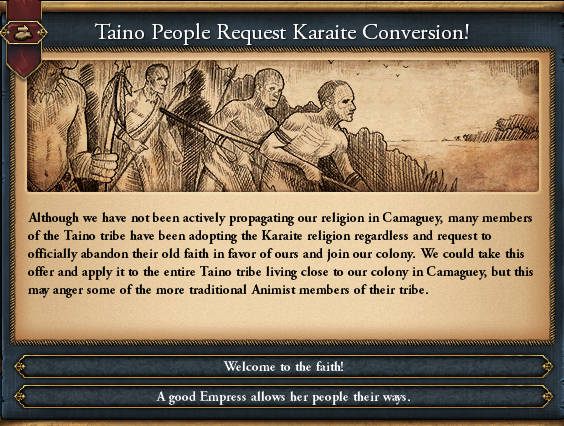
Back in Europe, the Germans had enough. Too many of their loved ones were lost in this “holy crusade” as the Bohemian Emperor and the Bishop of Rome branded it, and in the area of Franconia, people flocked to the streets of Würzburg, executing bishops and priests who openly supported the English cause. With the armies of the Rus and Bulgaria already marching on German soil, their King made an agreement with Tyrol. The Tyroleans would be free to execute him if they transfer his family to Innsbruck where they receive protection, as he feared more for his family’s life than his own. thus the King of Germany announced his abdication and Duke Otto von Thüringen of Thüringia, the only powerful noble who opposed the war, got elected by popular demand. On the same day in the city of Würzburg Martin Luther, a German priest announced his problems with the faith, and his suggestions to make it better. No pope, no crusade, no corruption. It resonated abruptly well with the average German of the time, so his teachings started to spread soon paving the way for the fall of the Papacy. Seeing this, Great Britain decided to surrender and Abraham II was captured. With all the other rulers of House de Normandie he was executed publicly as the war ended in Paris, while all their descendants had to discard the name de Normandie and their nobility. Calais and Brugge were given to France and Holland respectively, while Lille, Hainaut and Ghent was transferred to Holland. As the Tyrolean army was present in the city, the new King of France, Maurice II de Dreux, was forced to submit to Tyrol, becoming an autonomous vassal of the Tyrolean Empire. As mentioned before, Norway became the junior partner of Sweden, while King Otto IV von Thüringen’s rule over Germany was confirmed in the so-called Treaty of Paris in 1525.
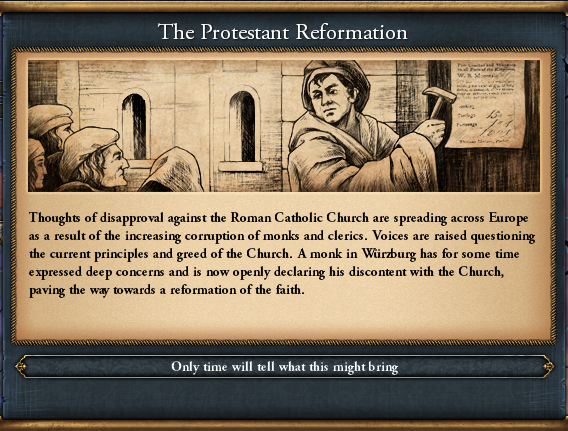
Once the Tyrolean armies returned to their homeland, the treacherous French king began to plot with the help of the Italians for French independence. Since the IRG uncovered this evidence, Empress Tziporah II forced Maurice II to grant land to her top generals: Nurse Pahlavuni (youngest brother of Andronik, as Gagik died) became the Duke of Anjou, Nehilai Weiss became the Duke of Orleans, while her spouse Nisi Abramovitch became the Duke of Champagne. This ensured Maurice II’s loyalty, as most French troops were now owned by the three Dukes loyal to Tyrol.
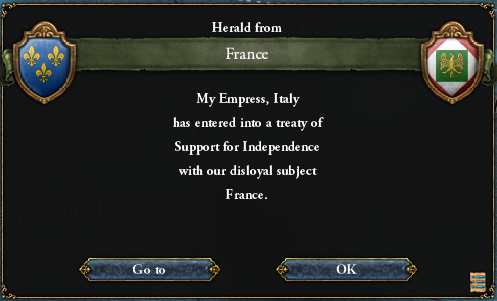
The Tudor were low nobility in 1453. But through endless scheming and powerful marriages, in 1525 Duke George Tudor was the Duke of East Anglia, Kent and Northumberland, and as a powerful candidate the nobles of Great Britain elected him to be the next king. Seeing as most of his populace despised the Papacy, he made a clever solution: he created Anglicanism, which incorporated some Protestant elements into Catholic dogma. He also made himself the Head of Faith, so that the populace has spiritual loyalty towards him, while he did not sour his relation with the Papacy. It was a win-win situation.

In Sweden, an ambitious peasant Nils Dacke lead the angry populace against the Swedish king. The revolt was hard to deal with, since it broke out over the land rights of the Protestant clergy, which Sweden wanted to revoke. As a consensus, the land rights of the Protestants have been enshrined in law, while the King converted to Protestantism. Realizing that due to his new faith he can exercise more power over the clergy, he became a zealous follower of Protestantism until his death.
For Tyrol, things turned out well after the war, since the army restored order, while Galicia was ready to be fully integrated into the Tyrolean Empire.
On the other side of the world though another empire faced total collapse. As Admiral Koxinga fled to Taiwan the Ming were already collapsing, as several generals made their own realms out of Ming, while the area of Beijing fell to the Manchus, all this happened while the eunuchs of Canton and Nanjing swore fealty to the Manchu tribesmen and refused to let Ming troops in. China would soon lose Ming as its master, but who would supplant them? This is a question for the future.
While Israel was dead, not all Jewish kingdoms died in the Middle East. In fact, one ceased to be a kingdom, but became an Empire, as Emperor Alechsandri IV Mose declared that he forfeits his claim over Tyrol, but proclaims his own Empire: The Mosecypric Empire. A hardline religious Empire versus a tolerant Western Hegemon: their rivalry will be legendary for ages.
After the war, trade between Europe and the Americas truly resumed. There was one problem however: in order for plantations to work, the colonizers needed cheap labor. As such, they bought it from Africa in the form of slaves. This evil practice began its renaissance in the Castilian colonies, but as other powers have seen that it is effective, they soon joined in the evil trade.
Meanwhile Tyrol started its first colonies in continental America. As there was much more land available, settlers spread out more freely.
An expedition was launched, from that point on to explore Mexico and try to explore as much as they could in general. They had many adventures, but those listed below are the most interesting ones.
As proven by the Peasant’s War, Tyrol needed to reform its army. Empress Tziporah II soon committed to that, deeply reforming the nature of the army and the navy distributing firearms and restructuring the command system. This made it so that Tyrol now has a professional army.
Sadly though not all were grateful to Tziporah II, as many merchants started to oppose her, due to the war killing trade almost entirely. To deal with this issue the coffee trade was developed in South America, albeit it was also taxed.
Nisi Abramovitch had passed away. The Empress remarried to Nisi Akabonid, the younger son of a powerful Jewish merchant in Charolais. They soon had an able heir called Mordechai.
It was becoming clear to the world that it had entered a new age after the Anglo-Tyrolean War: The Age of Reformation. Theologians and philosophers debated the nature of the divine in a period full of war and hatred.
With the discovery of South America, new diamond sites have been found. Now even rich magnates can afford them, not just emperors.
Ever since Tziporah heard stories of a New World from her father in her childhood. She soon realized that she needs to conquer all of it. But first she provided the governors of the area with extra funds.
After the wars with the natives of the land in the southeast, the second colonial administration of Tyrol was established.
As Castile used the slaves to their biggest extent, they could establish coffee plantations easily. A coffee boom had set in for the small kingdom: a little bit of prosperity before the storm.
With the fall of Israel many Jews began to migrate to Tyrol so that they can find refuge from Khaleelid control.
For Tyrol, the future can be prosperous or dark, but one thing is sure: it changed the world at least once.



